- Last Updated:
- 4/11/2025
- Alex Hastings
Life is full of obstacles, from interpersonal conflicts to career difficulties to mental health struggles. No single life coach is equipped to help with every issue a client struggles with. Over time, many types of life coaches have emerged to offer specialized guidance in their respective areas of expertise.
If you aren’t sure which niche to choose, use our decision tree to explore 27 life coach specialties and discover the best fit for your expertise!
Understanding Life Coaching Niches and Why Your Specialty Matters
Life coaching niches differentiate the wide range of professionals working in this field. While every life coach works with their clients to improve some aspect of their life and needs to excel at a few key coaching skills, the types of clients each coach works with, and the areas clients seek assistance with can differ widely.
For example, a divorce coach and a business coach both fall under the life coaching umbrella, yet one works with individuals seeking help at the end of a marriage, and the other helps companies identify and achieve business objectives. The title of “life coach” is too broad to convey the specialized work these professionals do.
The most important reasons for identifying your life coach niche boil down to three points, ultimately promoting your coaching business and carving out a spot for yourself in this industry. Some key benefits of choosing a coaching niche include:
- Identifying who your target audience is and position yourself as an expert in that field
- Developing tailored messaging to market yourself to your target audience when you know who they are and what they need
- Competing against fewer life coaches since you specialize in a specific niche
Pro Tip: Every life coach niche comes with its own risks, affecting the type of coverage you need in your life coach insurance policy. Check out our guide to picking the best insurance for your life coaching niche!
The Most Popular Types of Life Coaches
There are several types of life coaching niches to choose from, and new niches pop up every year. Here are 27 of the most popular types today, plus information about optional — but highly recommended qualifications — and necessary skills for each.
Career and Business Coaching

The business coaching market is valued at $14.1 billion, demonstrating the demand for life coaches in this niche. If your interests lie in helping professionals or businesses grow or plan for the future, this may be the right segment for you.
1. Career Coach
A career coach assists people in navigating and making decisions about their career path. This typically involves helping clients identify their professional strengths and what matters most to them in a job.
By determining these strengths, weaknesses, and values, they work with their clients to develop a plan for achieving their career goals.
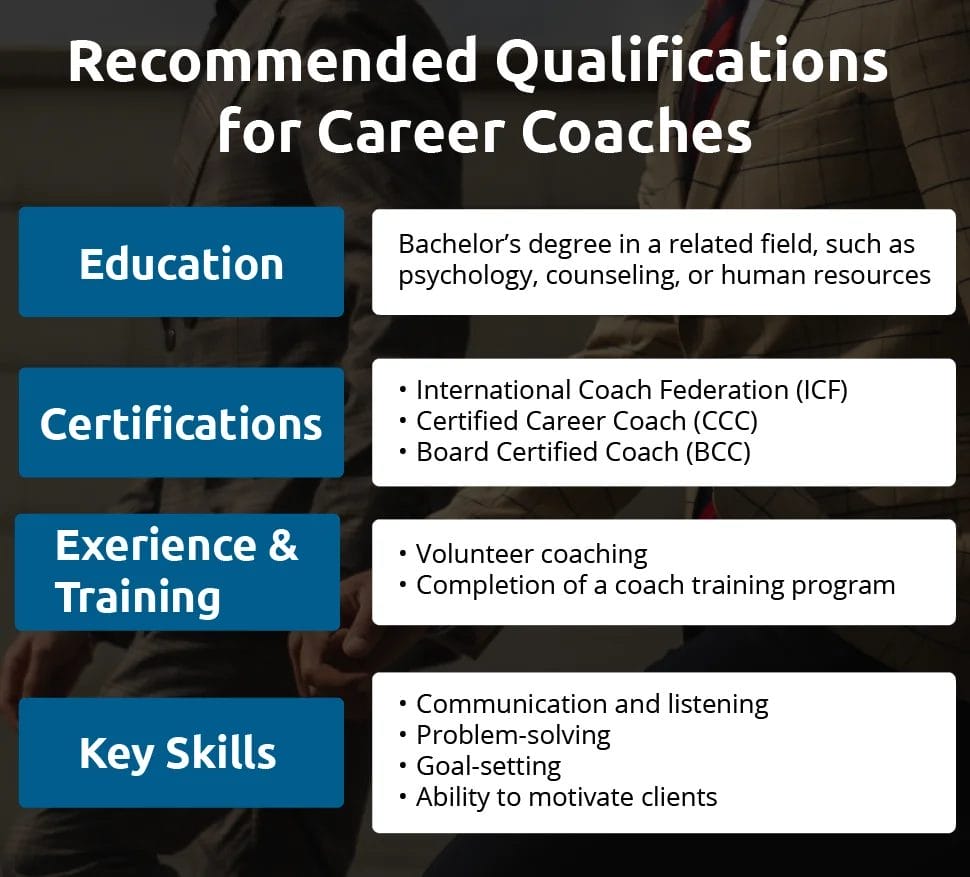
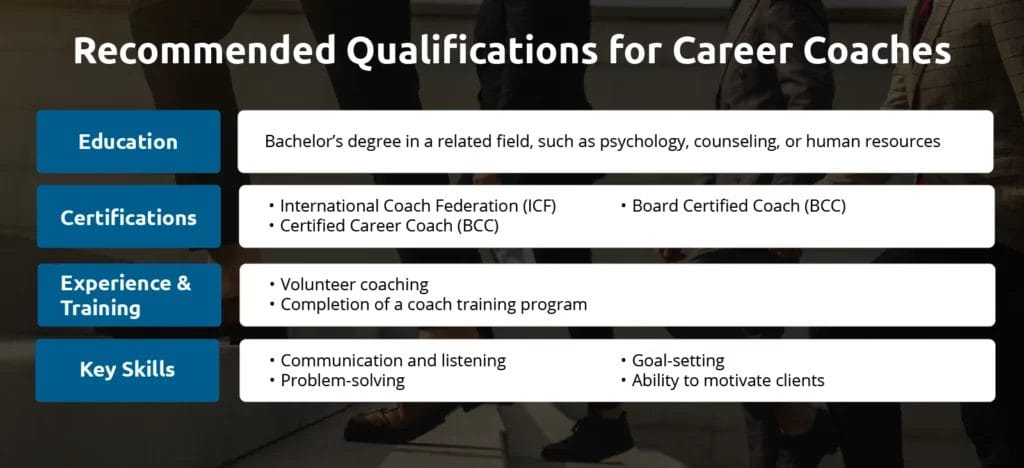
Recommended Certifications:
2. Business Coach
Employees and corporate entities often seek out a business coach to guide them toward reaching their goals by lending key insights into business management. They offer critical feedback, bring fresh ideas to the table, and ensure clients stay focused on their business objectives.
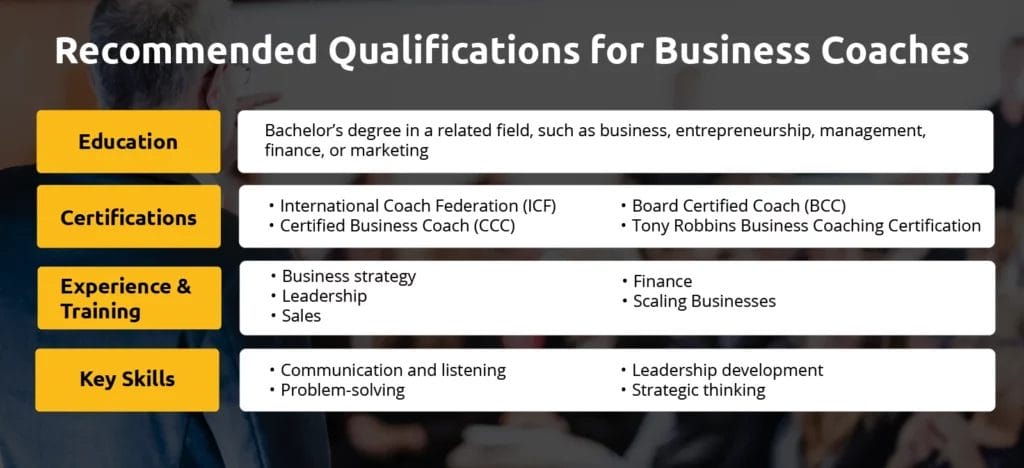
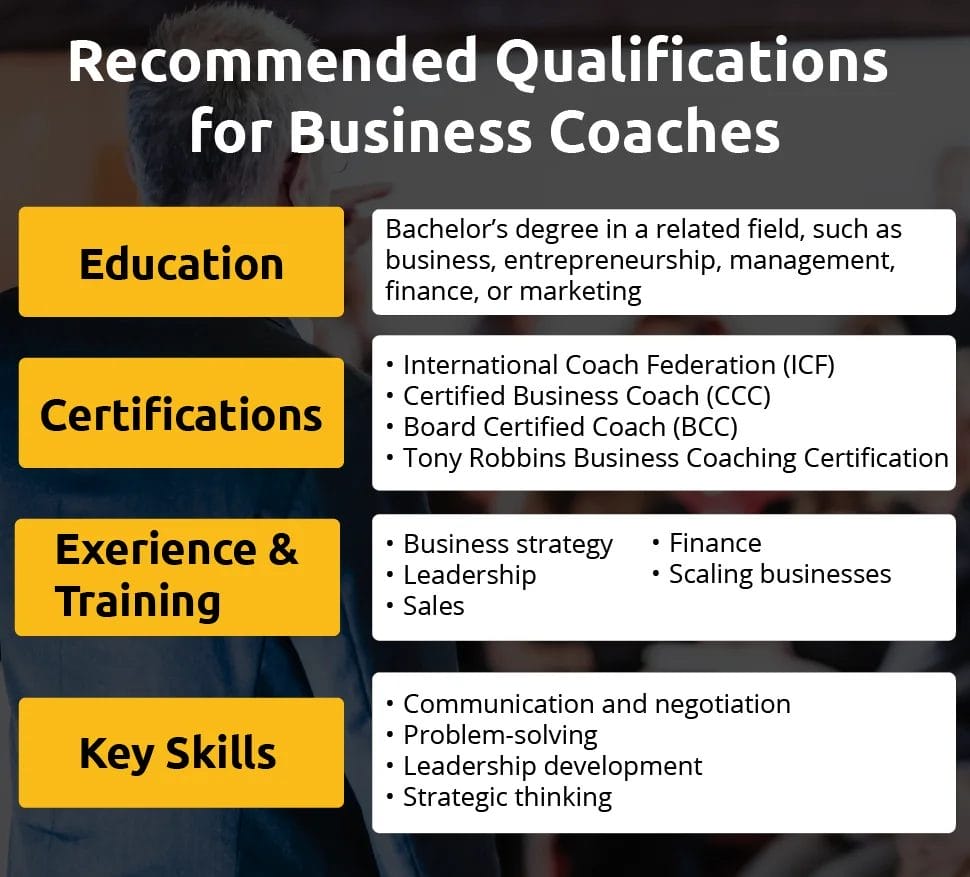
3. Executive Coach
Executive coaches focus on helping high-level executives and business leaders perform their best. Often compared to mentors or consultants, they are slightly different in that their main focus is on enhancing clients’ leadership skills, managing challenges, and making effective decisions rather than giving specific business advice or expertise.
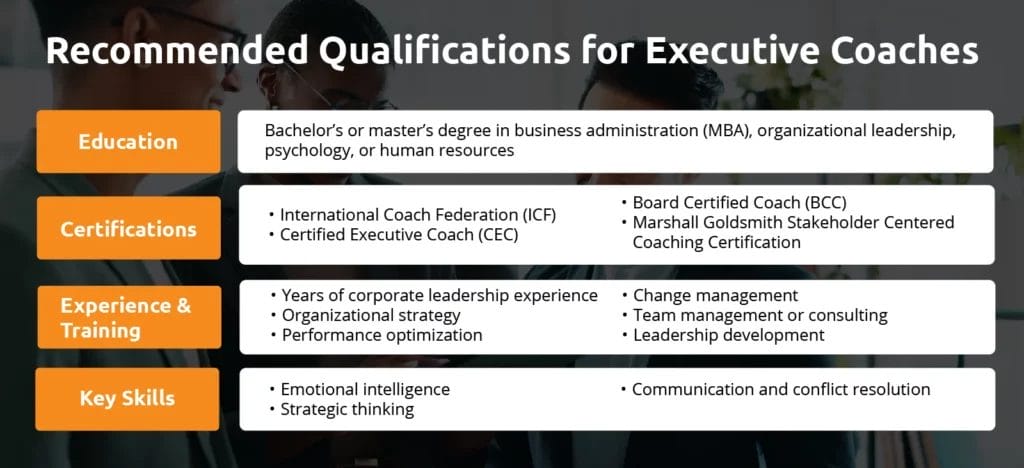
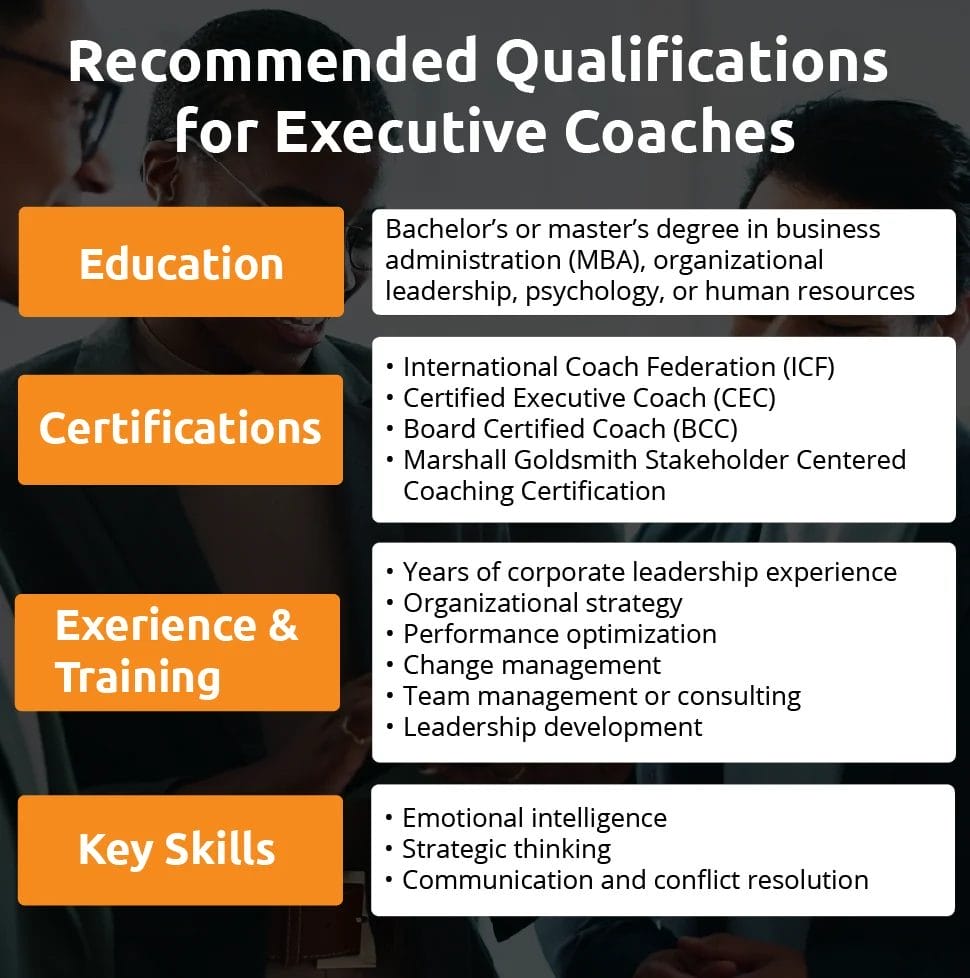
4. Leadership Coach
If you want to help future leaders, becoming a leadership coach might be an ideal choice. This type of life coach provides guidance and support to people who need to level up their leadership skills. This involves helping them discover what they’re good at and opportunities for improvement.
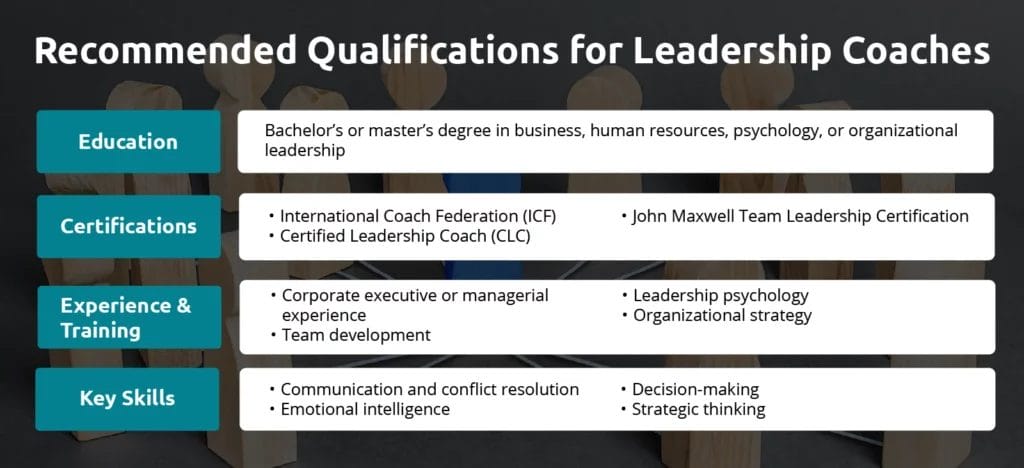
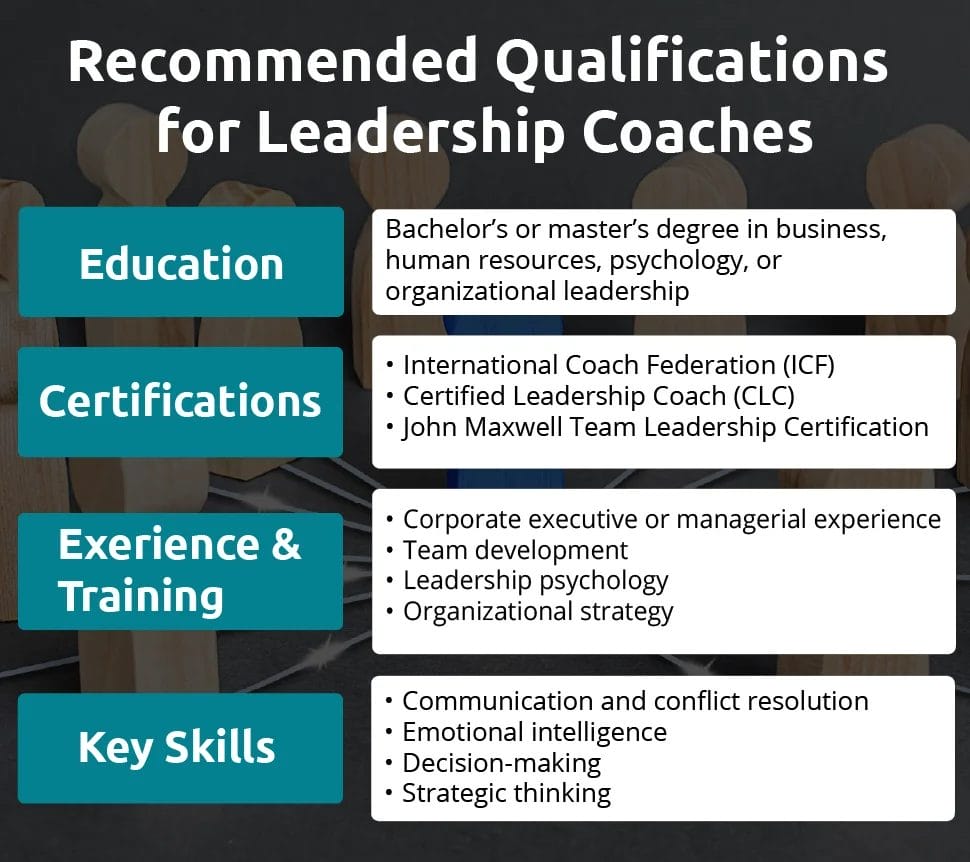
5. Small Business Coach
Unlike business coaches, who serve larger companies, these professionals have a client base of small business owners and entrepreneurs. These individuals are often in the earliest stages of starting and growing their business, turning to small business coaches for mentorship and assistance with strategizing, setting goals, and developing a vision for their brand.
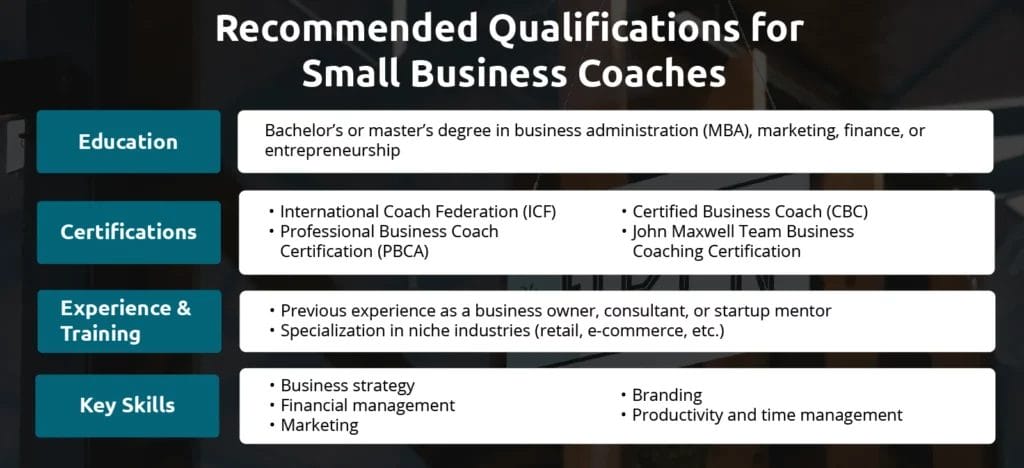
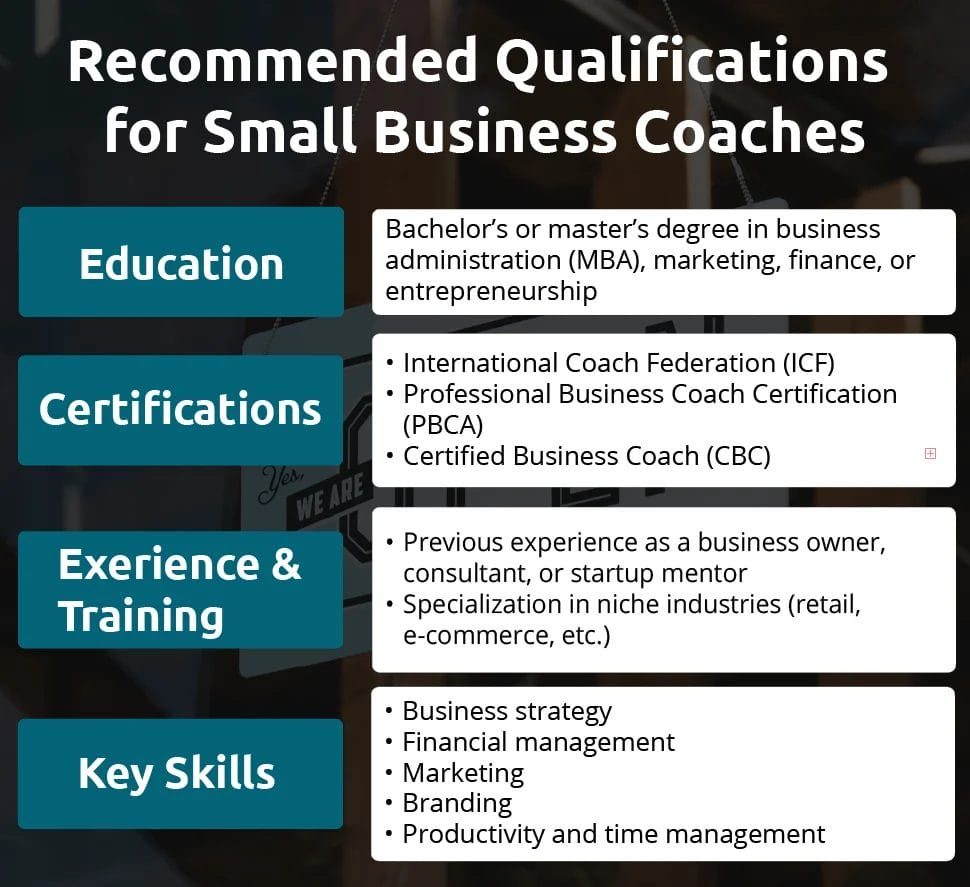
Personal Growth and Development Coaching

When many people think of life coaches, professionals in this category come to mind. Personal growth and development coaches focus on helping individuals overcome challenges in their private lives — whether internal or external. Some, like goal-setting coaches, may work with businesses or teams, but they generally tend to cater to individual needs.
6. Confidence Coach
People seek out confidence coaches to address their self-doubt and insecurities. Confidence coaches provide guidance, strategies, and support to help clients boost their self-esteem. They also help individuals learn to be more assertive and voice their opinions — without coming across as domineering or bossy.
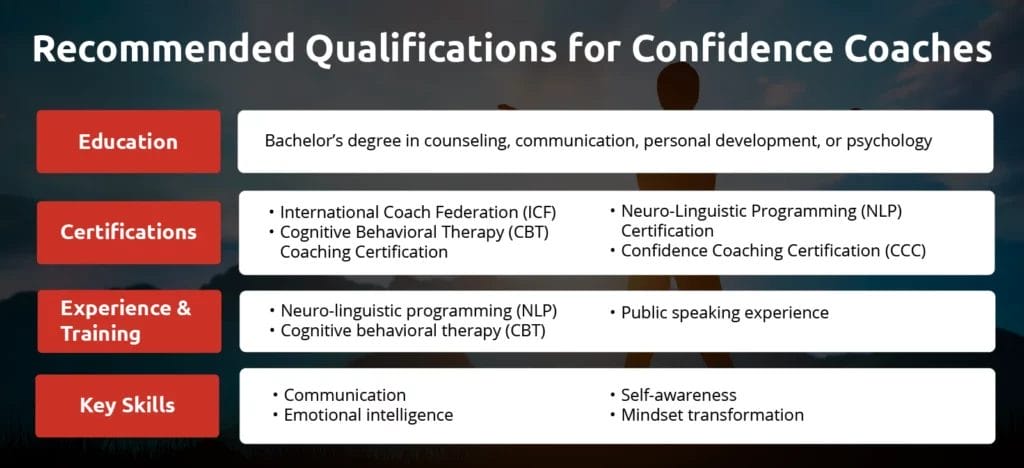
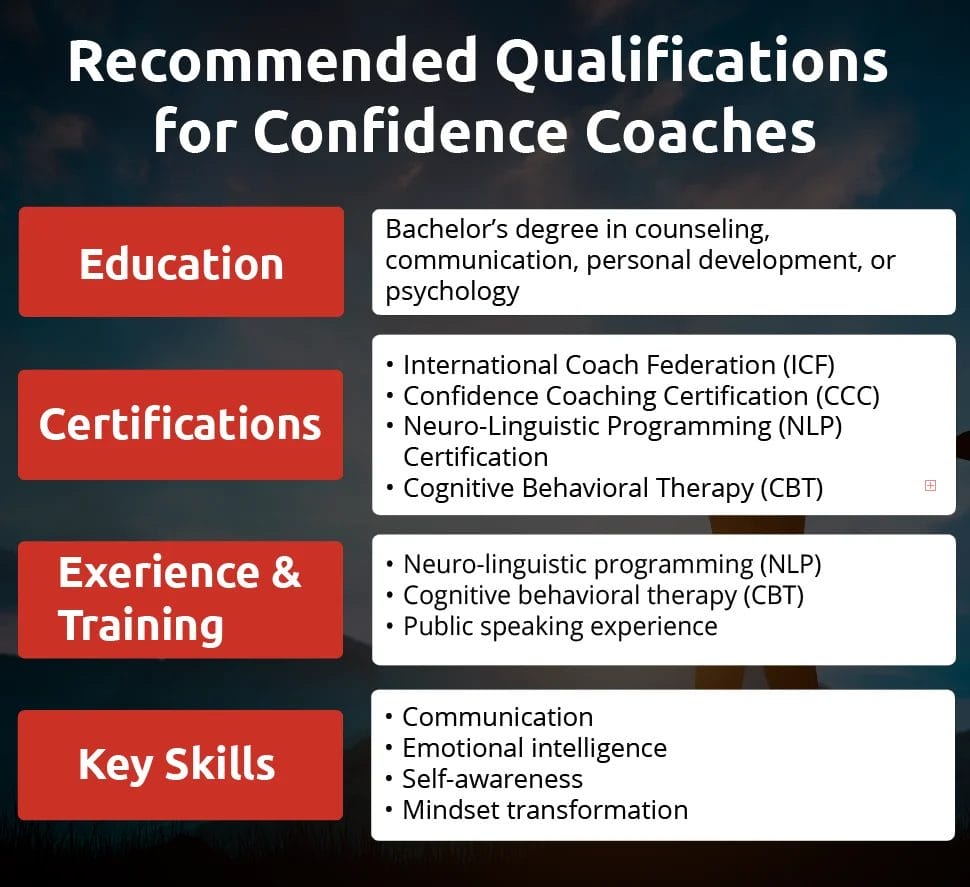
7. Creativity Coach
If you’re a creative person who wants to inspire and help other creatives, this niche might be perfect for you. Creativity coaches assist artists, writers, musicians, and anyone who wants to boost their creative thinking and problem-solving skills. They often help clients overcome a creative block, unlock their imagination, and develop their creative potential.
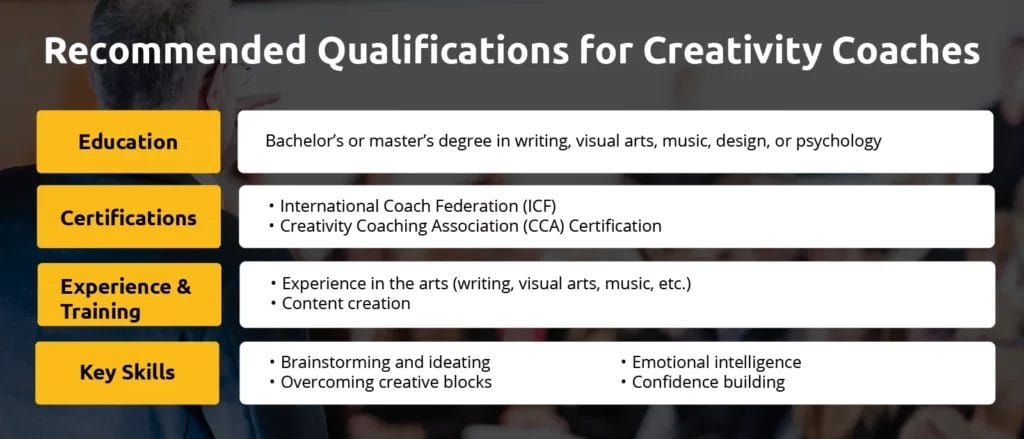
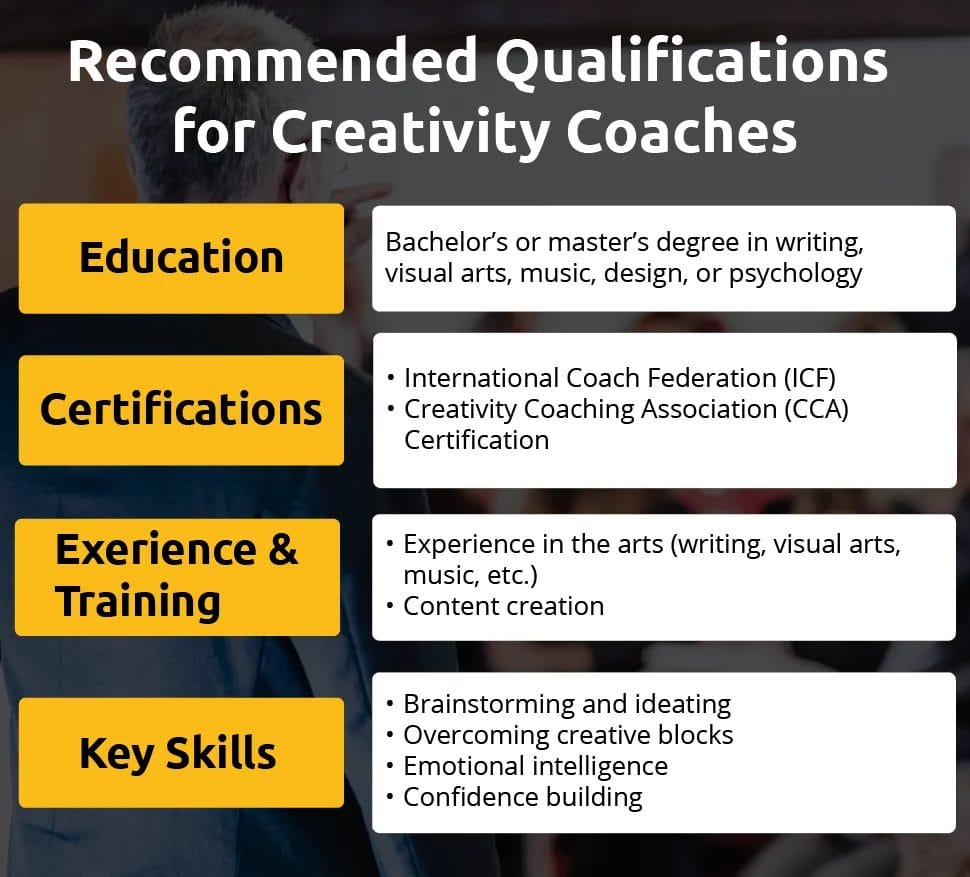
Recommended Certifications:
8. Goal-Setting Coach
Goal-setting coaches specialize in helping individuals or teams determine their aspirations and develop clear, actionable plans to reach these goals. They focus on teaching effective strategies for setting and accomplishing ambitious yet realistic goals.
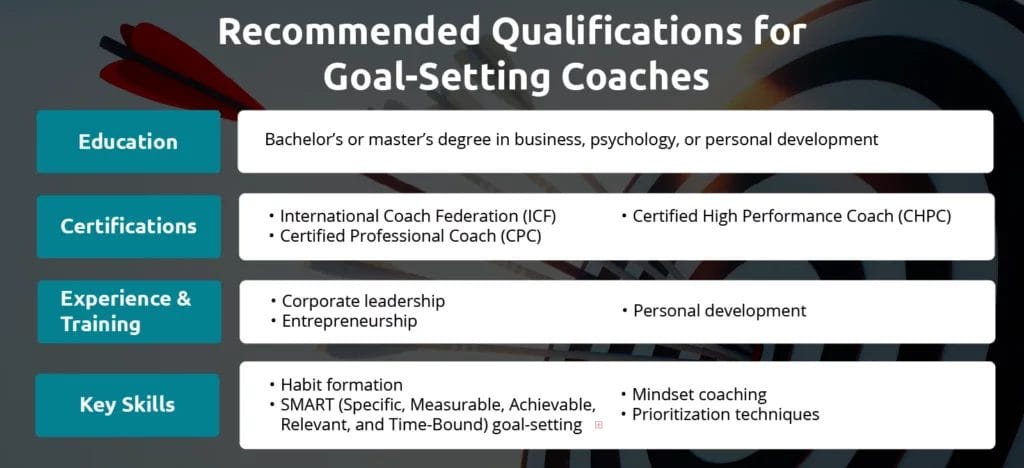
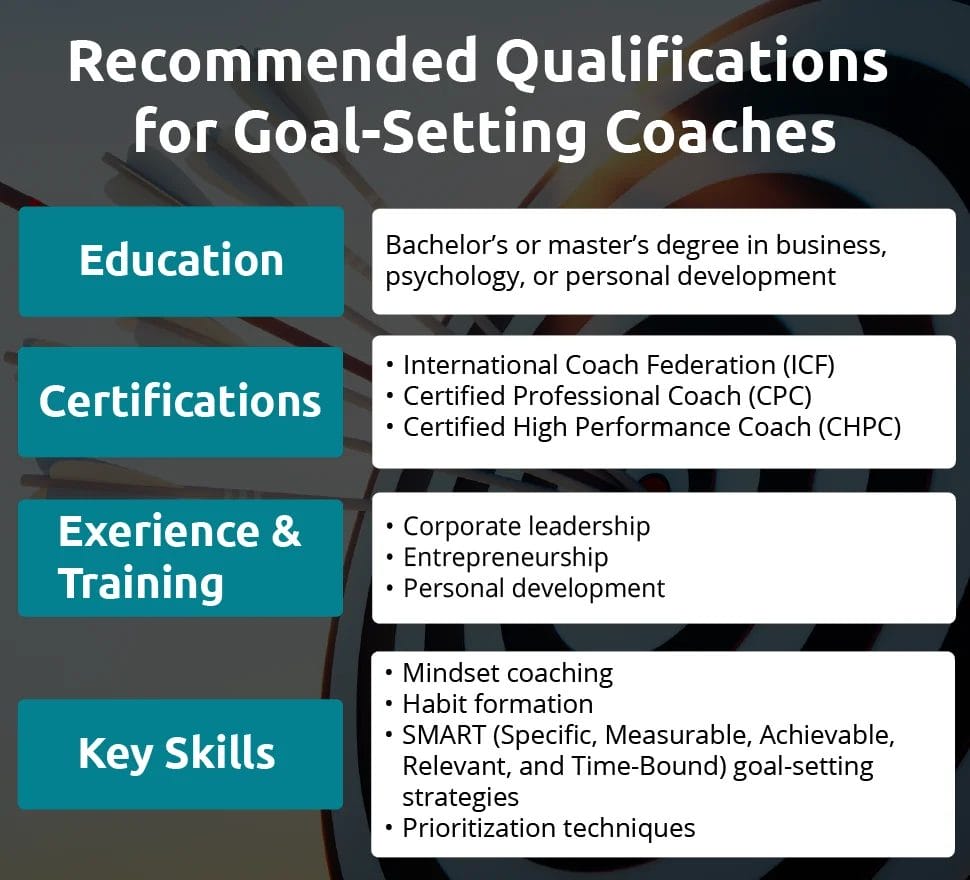
9. Motivational Coach
More than a personal cheerleader, a motivational coach guides individuals in overcoming life’s obstacles. They help clients hone in on their desires, dreams, and aspirations to build self-confidence and encourage them to stay focused and determined on their journey.
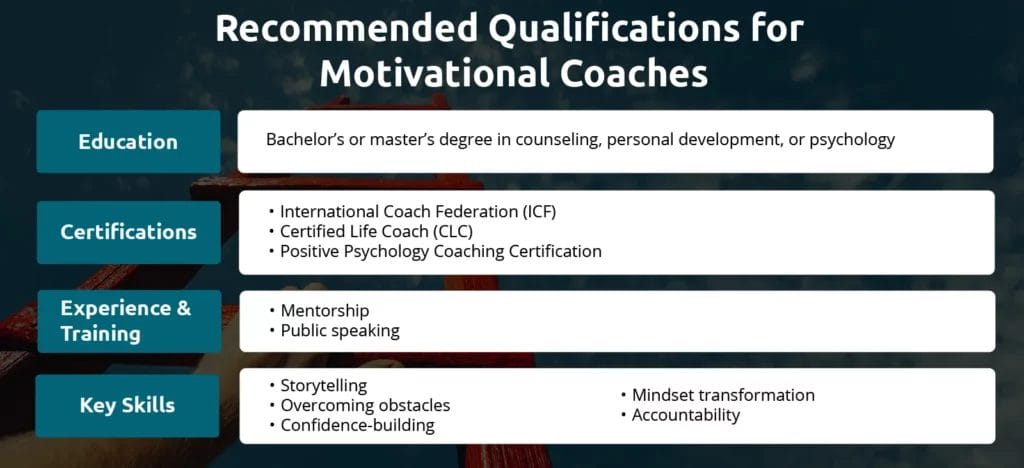
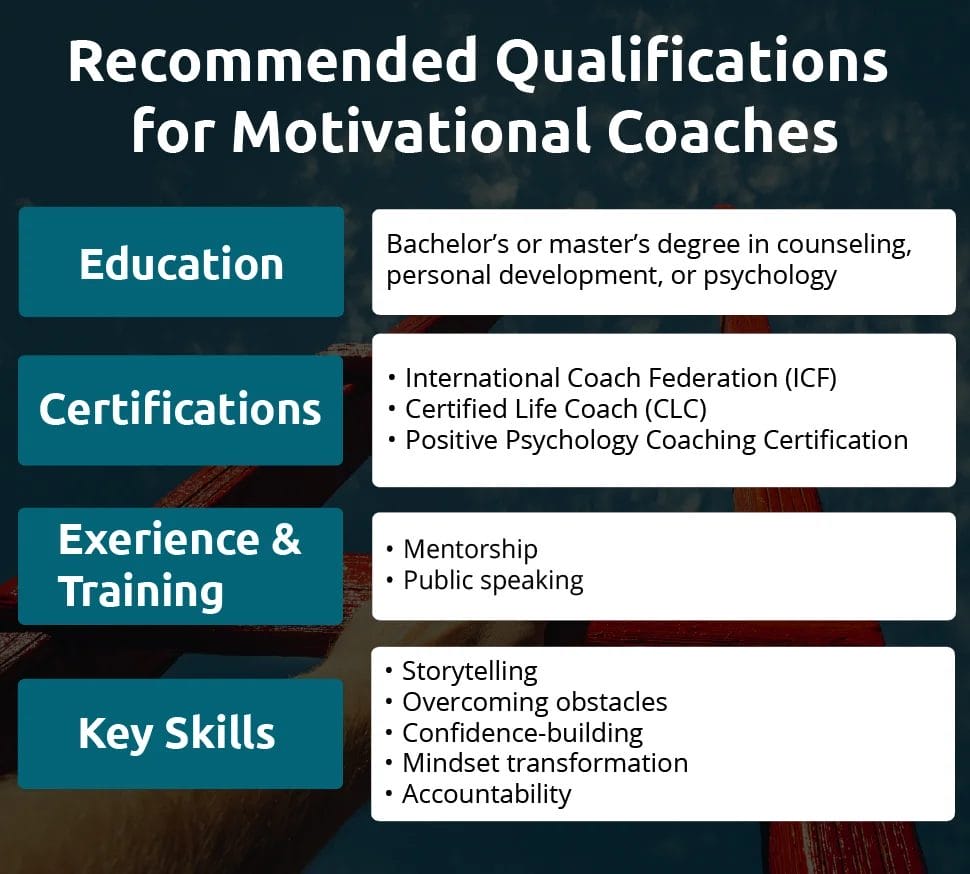
Recommended Certifications:
10. Personal Development Coach
A personal development coach supports clients in achieving their personal and professional goals. By developing specific strategies and action plans, they help clients identify their strengths and weaknesses to push them toward personal growth and improvement.
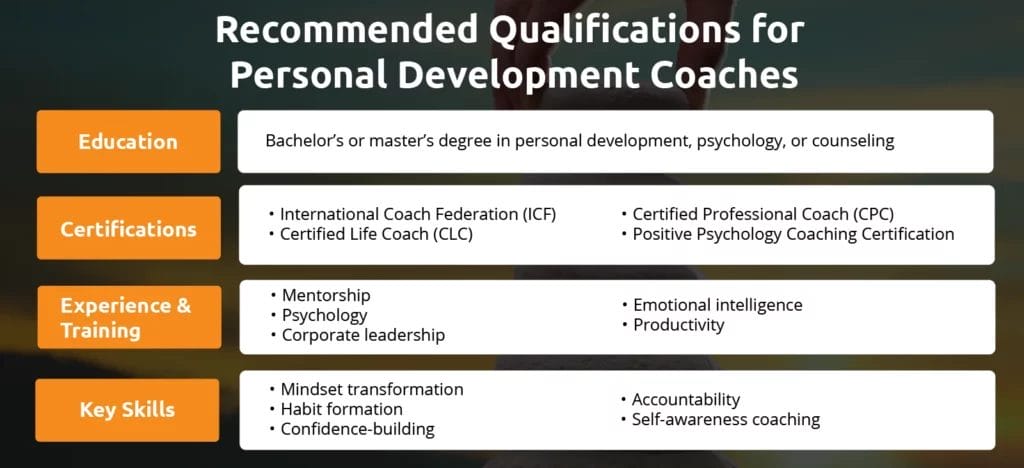
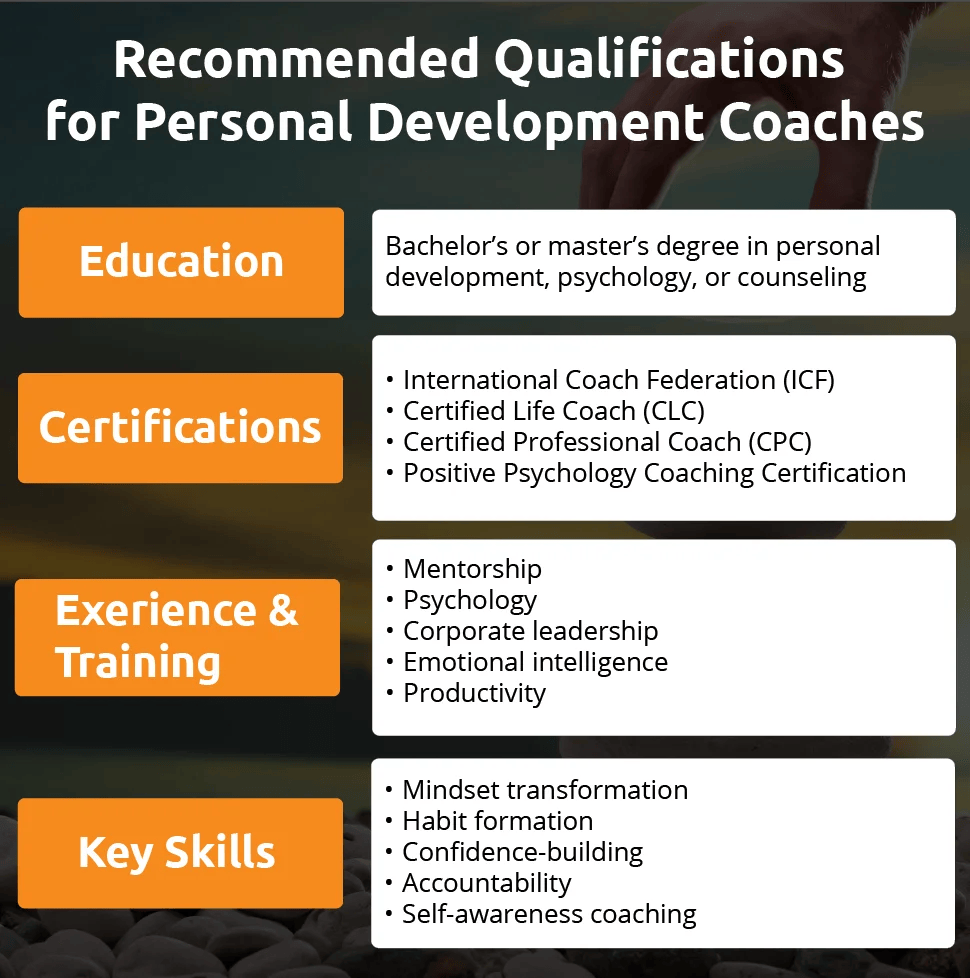
11. Time Management Coach
Time management coaches assist individual clients and companies by listening to their clients’ specific needs and challenges and teaching them how to manage their time effectively. This involves developing systems and habits that work for them, including setting goals and prioritizing tasks.
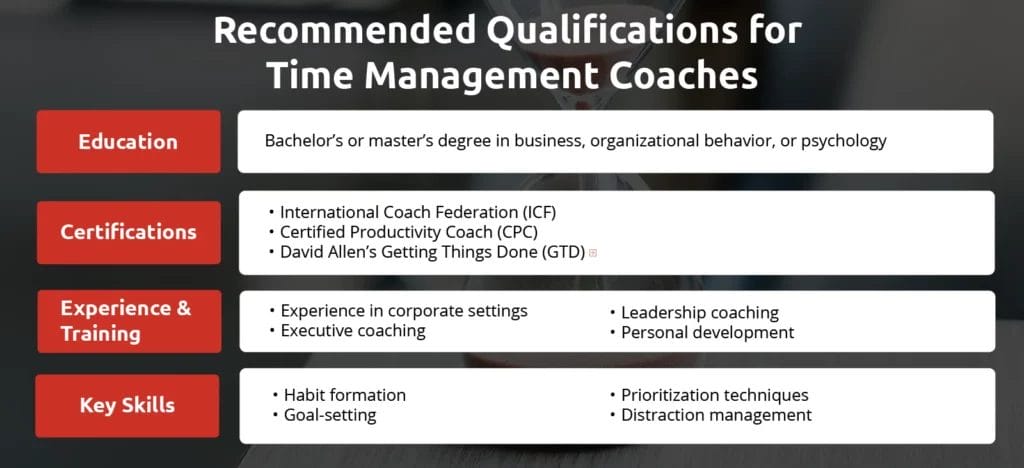
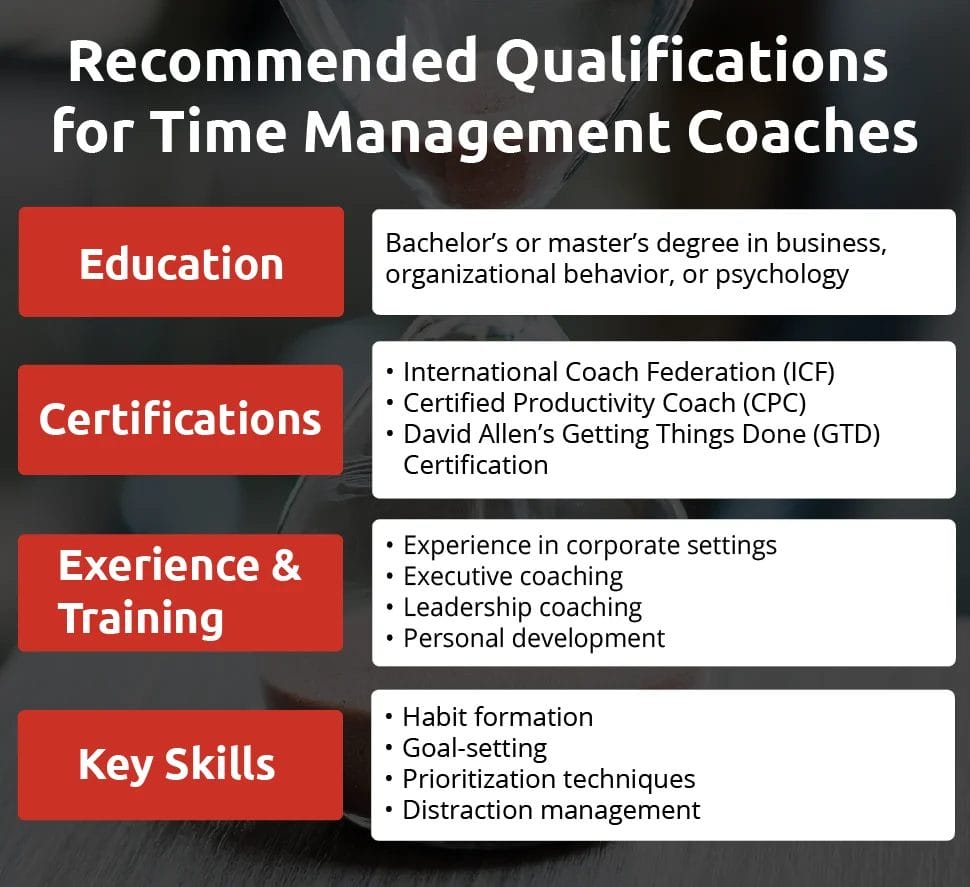
Health and Wellness Coaching

While health and wellness coaches are their own unique niche, this category also encompasses coaches who help clients manage stress, stay mindful, and reach their weight loss goals. They often offer advice on nutrition, fitness, and mental health.
12. Health and Wellness Coach
Coaches in this niche focus on helping people live healthier lives, covering everything from physical to mental and emotional well-being. They provide guidance, support, and motivation in areas like eating healthy, staying active, and stress management.
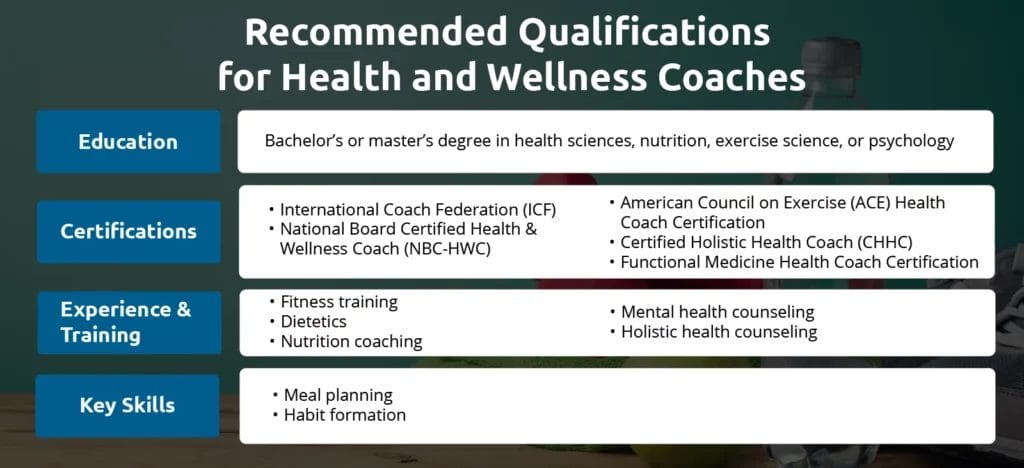
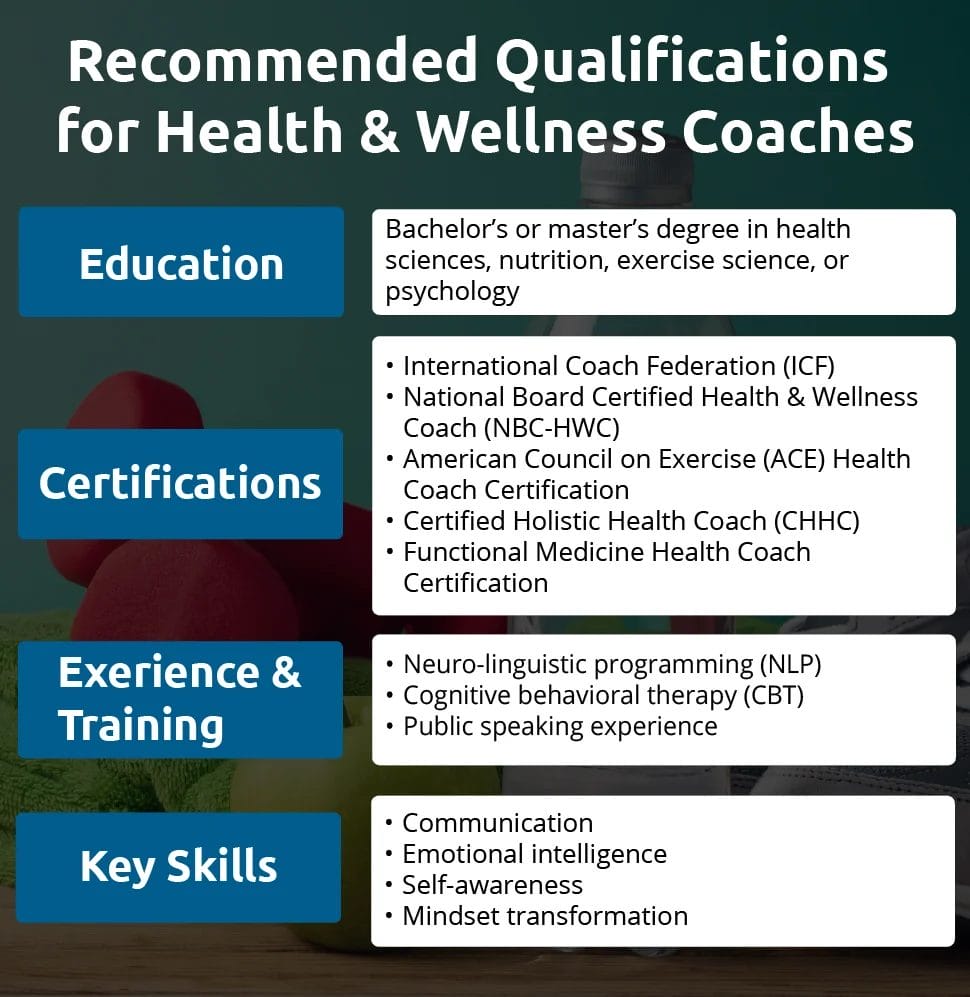
13. Mindfulness Coach
These coaches guide clients in cultivating mindfulness and inner peace. They teach techniques such as breathing exercises and meditation to reduce stress and contribute positively to their overall well-being.
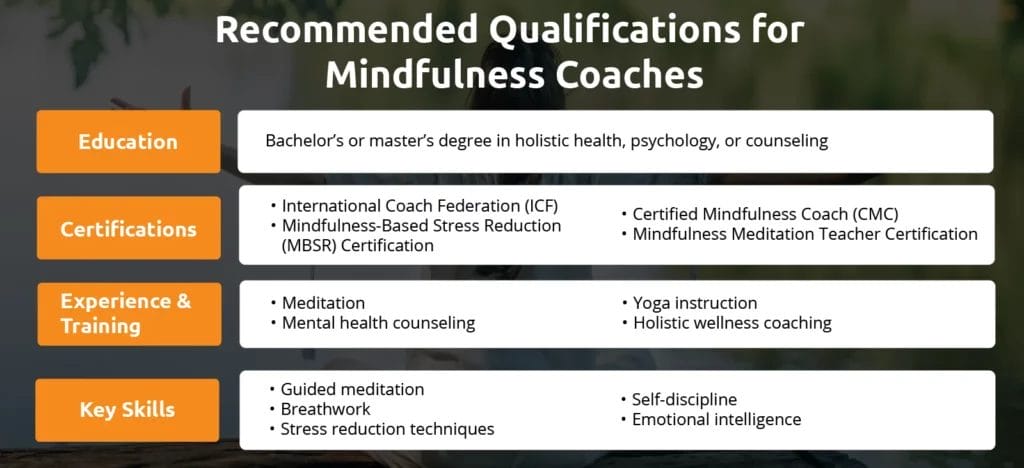
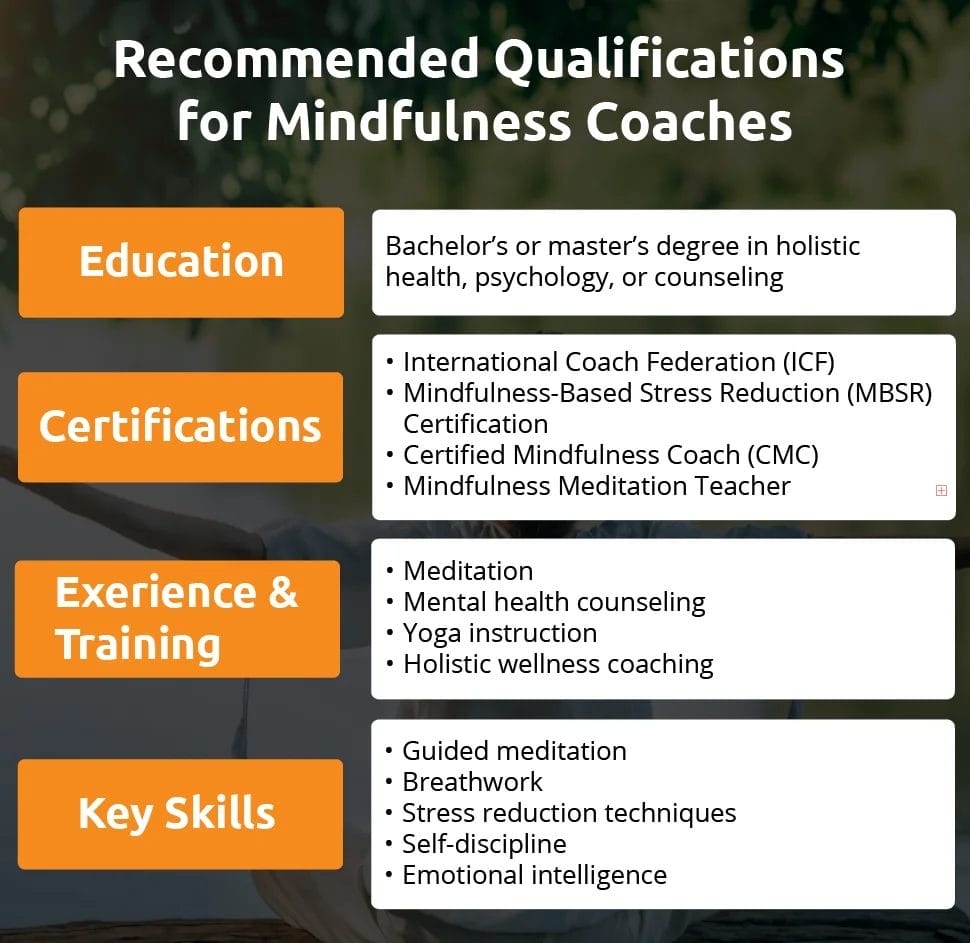
14. Stress Management Coach
Individuals struggling with stress and anxiety benefit from working with a stress management coach. This type of life coach works with clients to develop strategies and techniques to minimize stress effectively. They also provide guidance on relaxation techniques, time management skills, and healthy lifestyle habits.
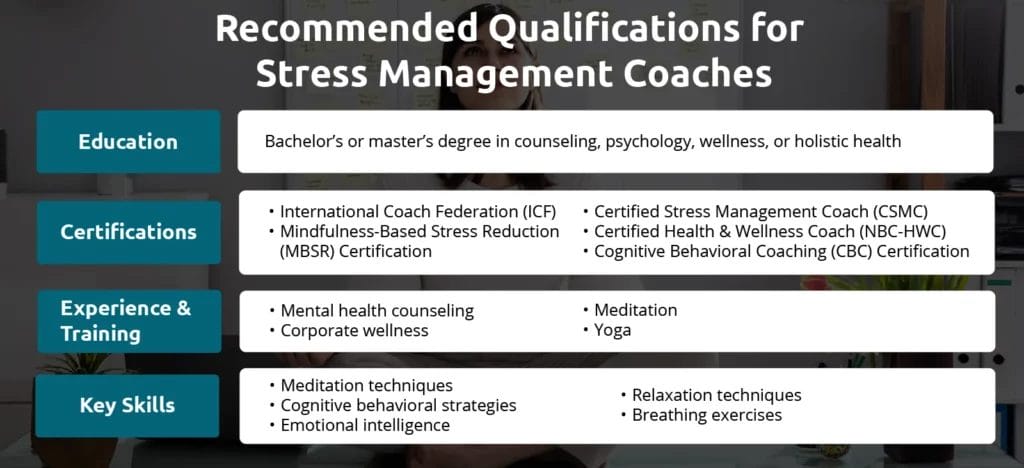
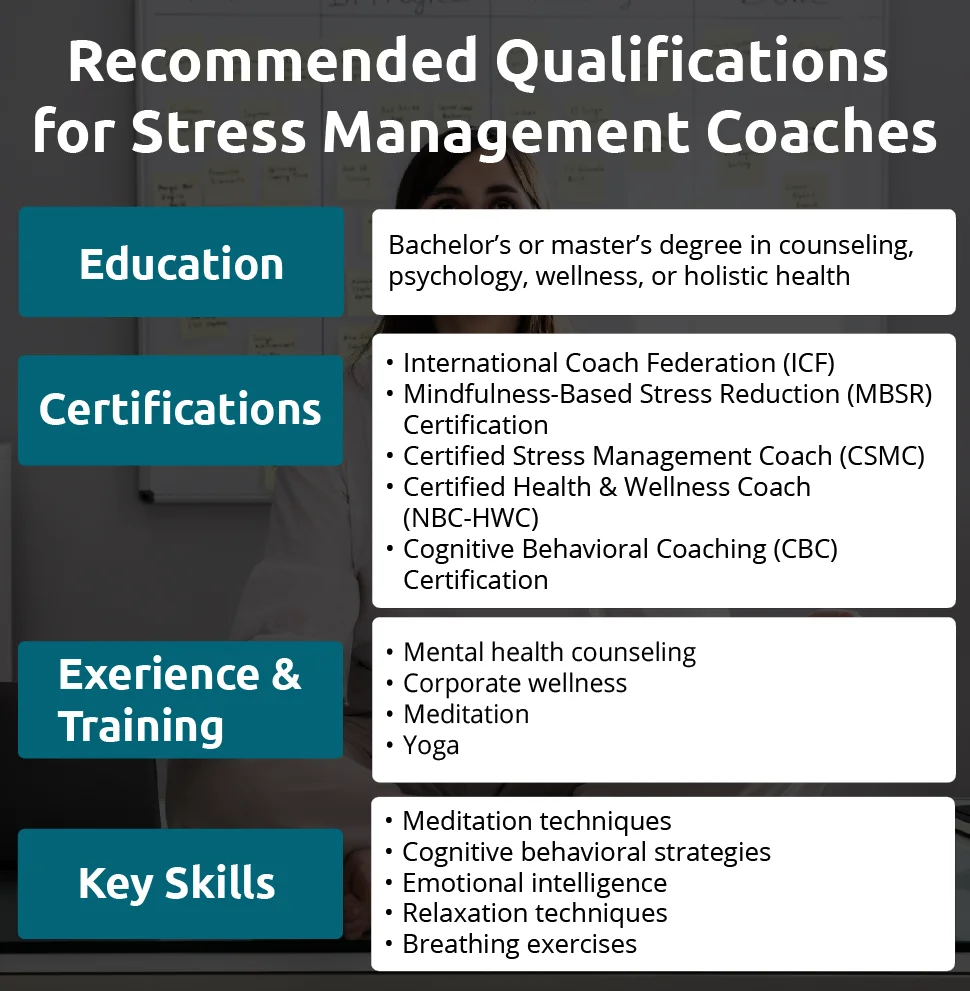
15. Weight Loss Coach
A weight loss coach supports clients in achieving their weight loss and fitness goals. They create personalized health plans that include diet and exercise tips to keep them motivated and accountable throughout their weight loss journey.
Compared to fitness instructors, weight loss coaches educate their clients on nutrition, healthy eating, portion control, and lifestyle changes that aid with long-term weight management.
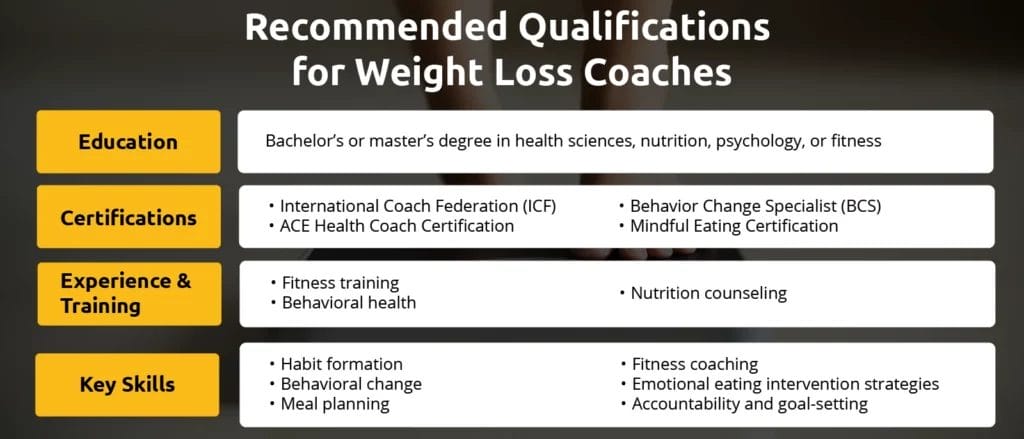
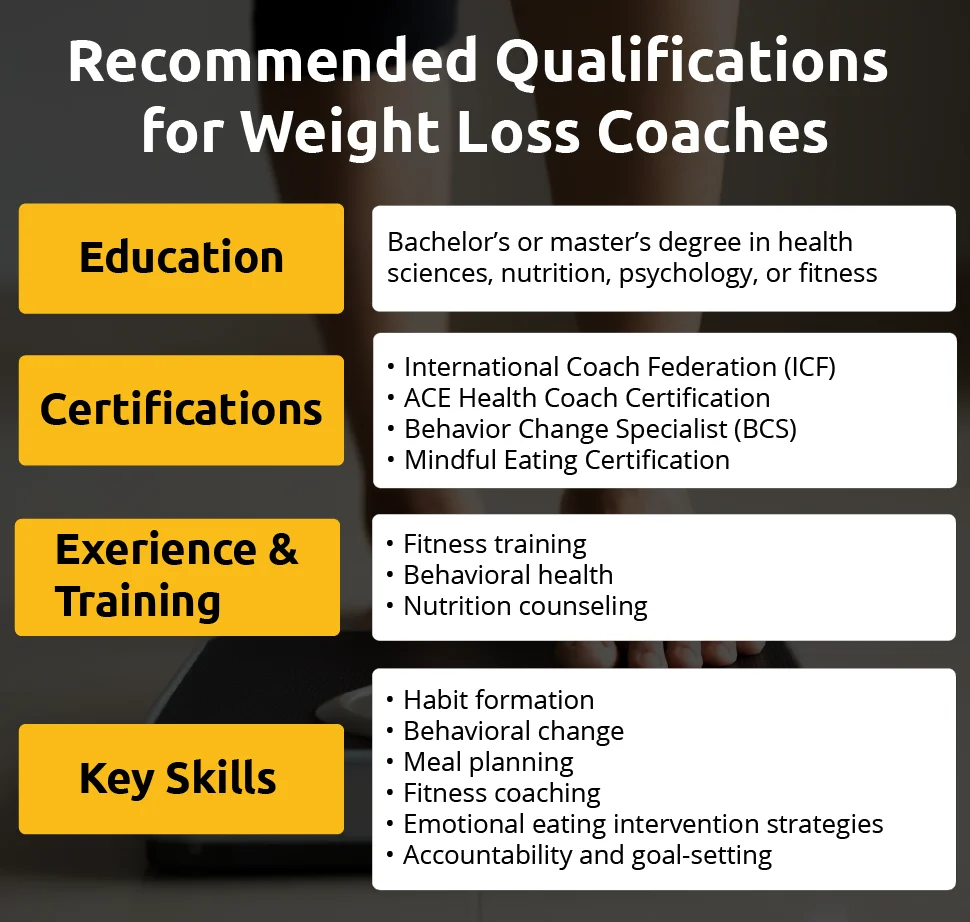
Relationships and Family Coaching

Life coaches in the relationship and family category work with clients to develop strong interpersonal relationships through effective communication strategies or move on after the dissolution of a relationship.
16. Communication Coach
Communication coaches work with individuals to improve their communication skills, boost their personal relationships, or foster work success. This includes verbal and non-verbal communication, such as public speaking, effective listening, body language, and assertiveness.
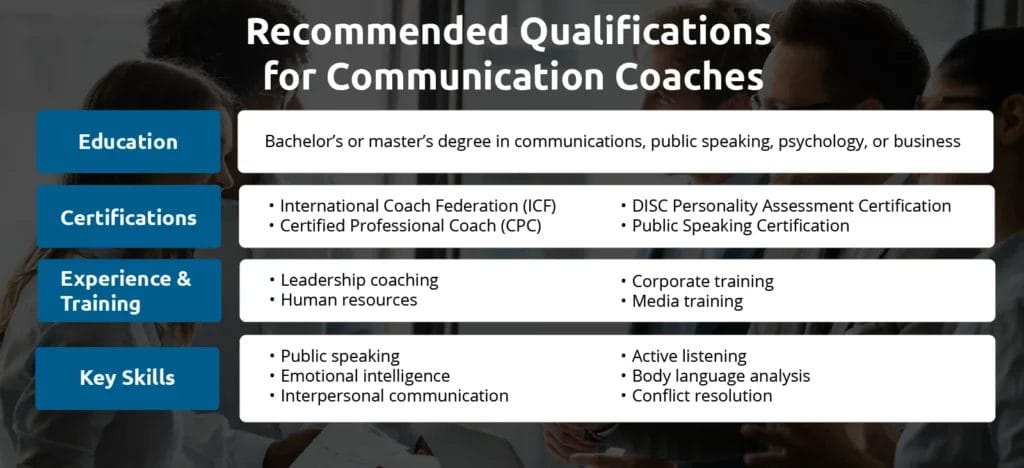
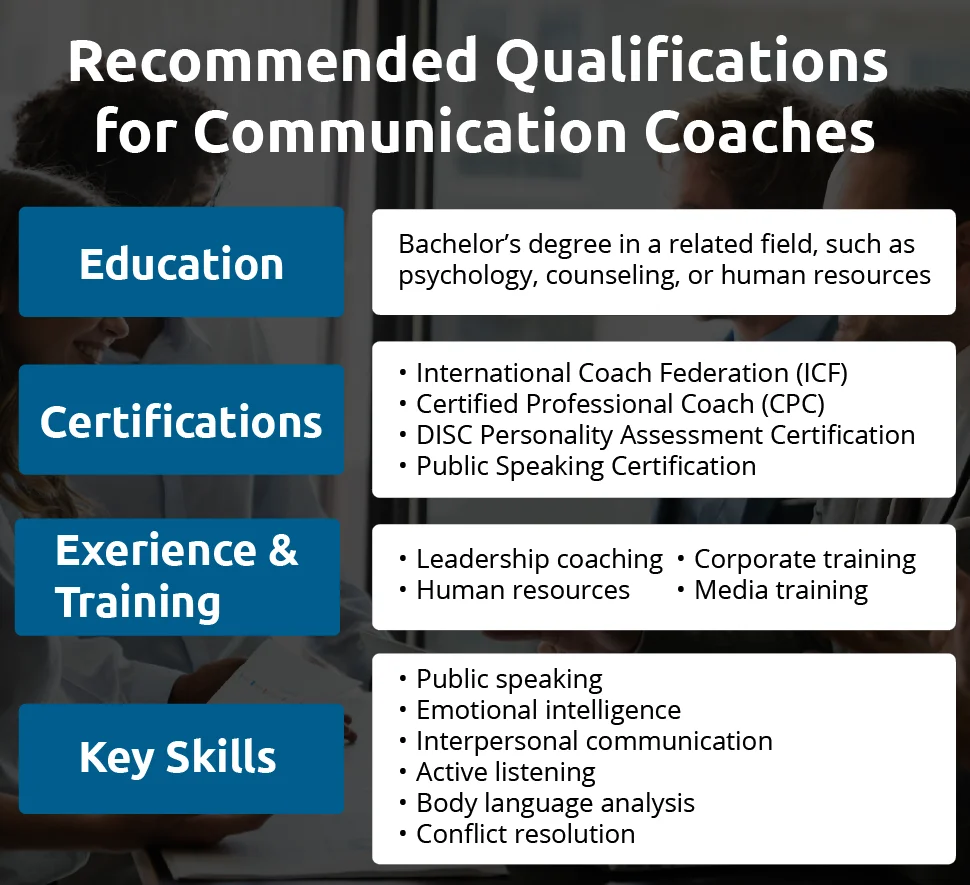
17. Parenting Coach
Trained in various aspects of child psychology and development and effective parenting techniques, parenting coaches help clients with child-rearing concerns. This involves dealing with behavioral problems, improving communication with their children, setting boundaries, and using discipline strategies.
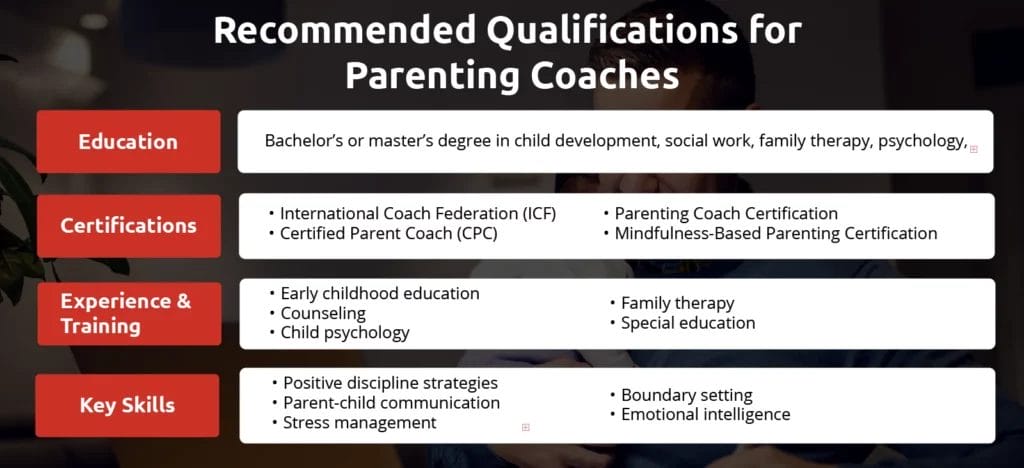
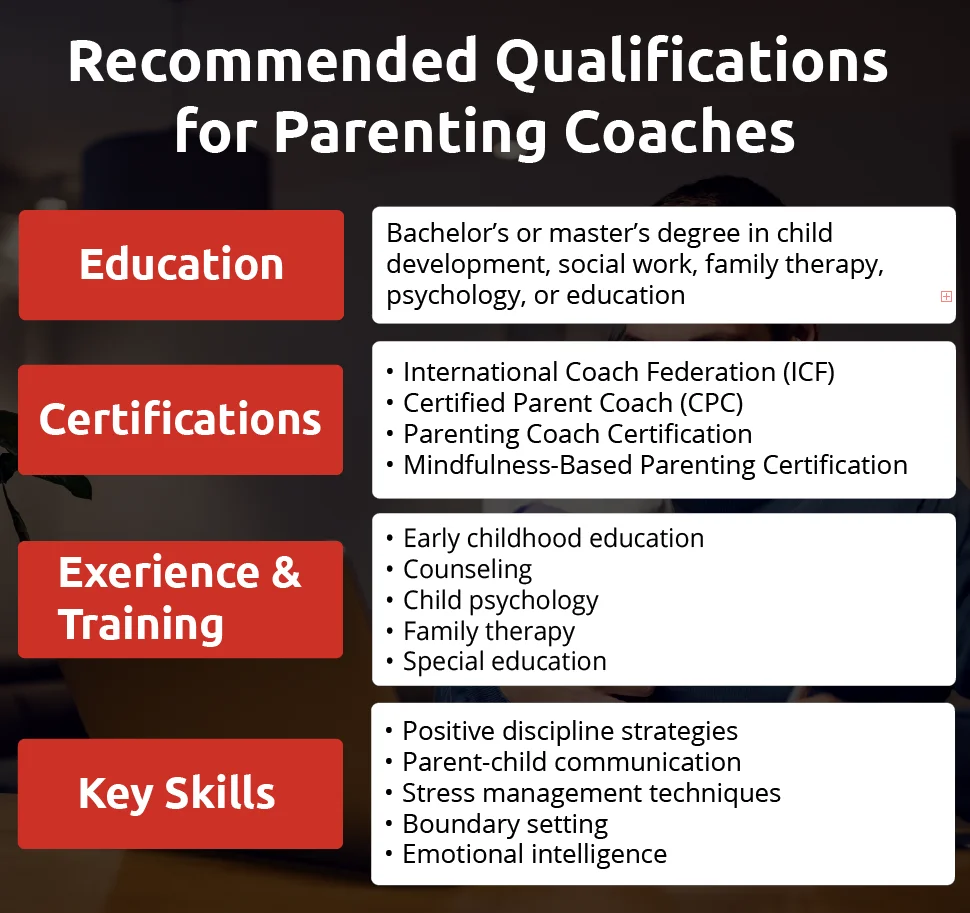
18. Relationship Coach
Relationship coaches are life coaches who specialize in helping individuals and couples improve their relationships. They tackle problems like communication issues, trust concerns, and other interpersonal conflicts by providing strategies and tools for boosting emotional intimacy, strengthening connections, and building healthy, fulfilling relationships.
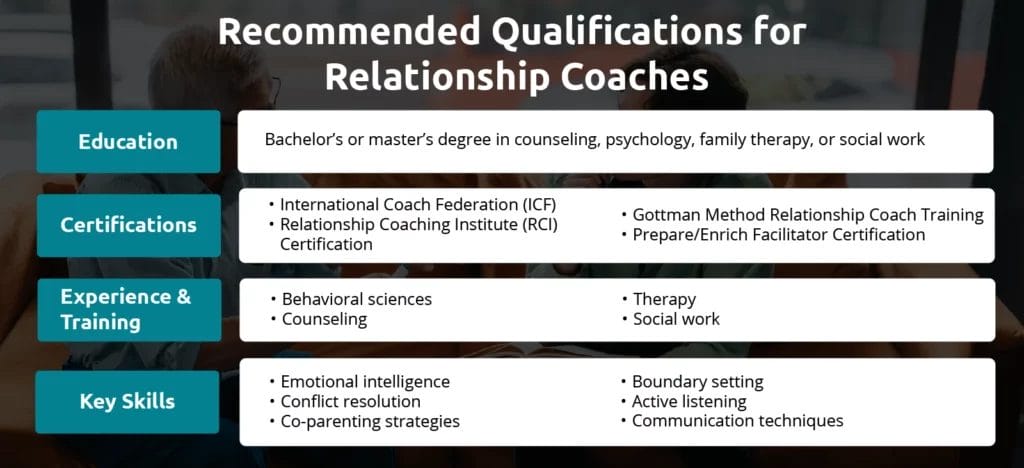
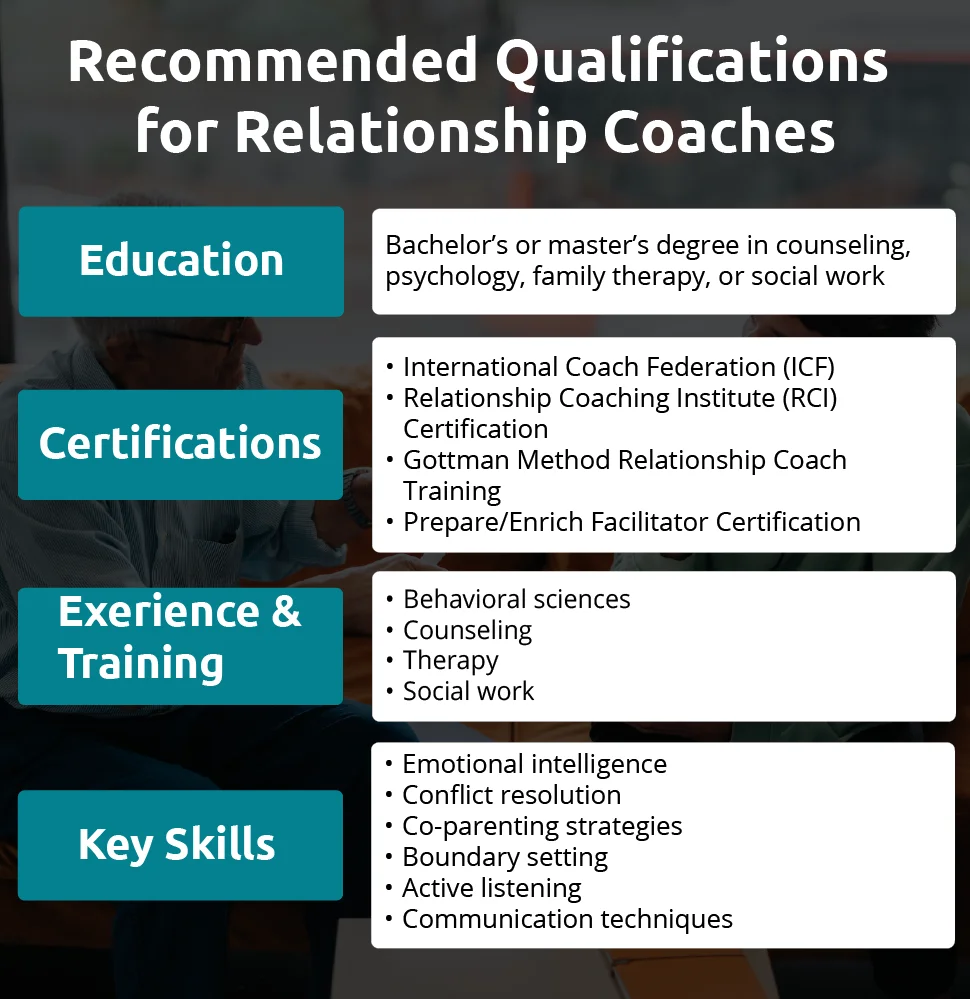
19. Divorce Coach
Going through a divorce or separation is difficult at best, and some people find it beneficial to work with a divorce coach during this stressful time. They support their clients through every step of the divorce process, from managing emotions to dealing with practicalities, all while empowering them to move forward with their lives.
This involves navigating the legal system and communicating effectively with their ex. They also provide strategies for coping, managing conflict, and prioritizing the client’s needs and goals during this trying time.
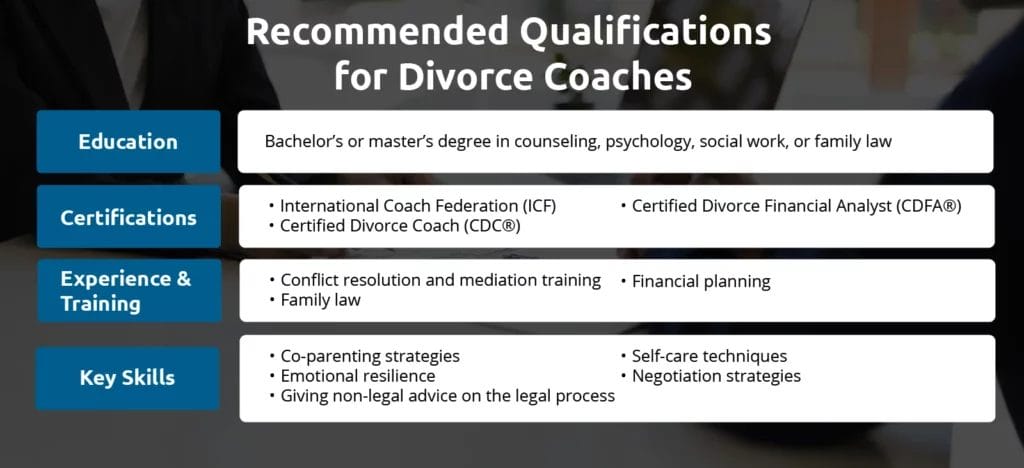

Life Transitions and Purpose Coaching

People seek out a life coach to help them navigate or prepare for a major change in their life, such as retirement or a career change. Coaches in this category focus on managing stress, setting goals, and staying mindful during these periods.
20. Life Balance Coach
Life balance coaches help clients find the ideal balance between work, family, and personal life to avoid burnout. This niche addresses setting priorities, targeting goals, and creating time and resource management plans. Life balance coaches also offer support in stress management and self-care strategies.
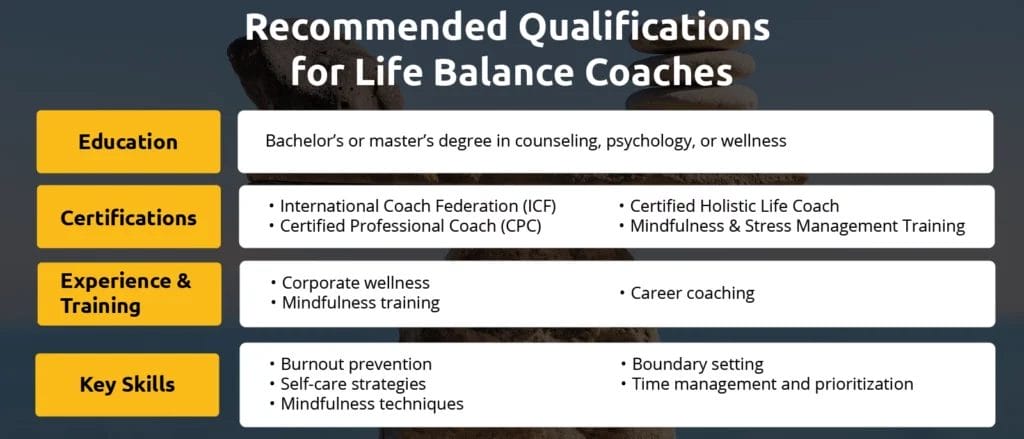
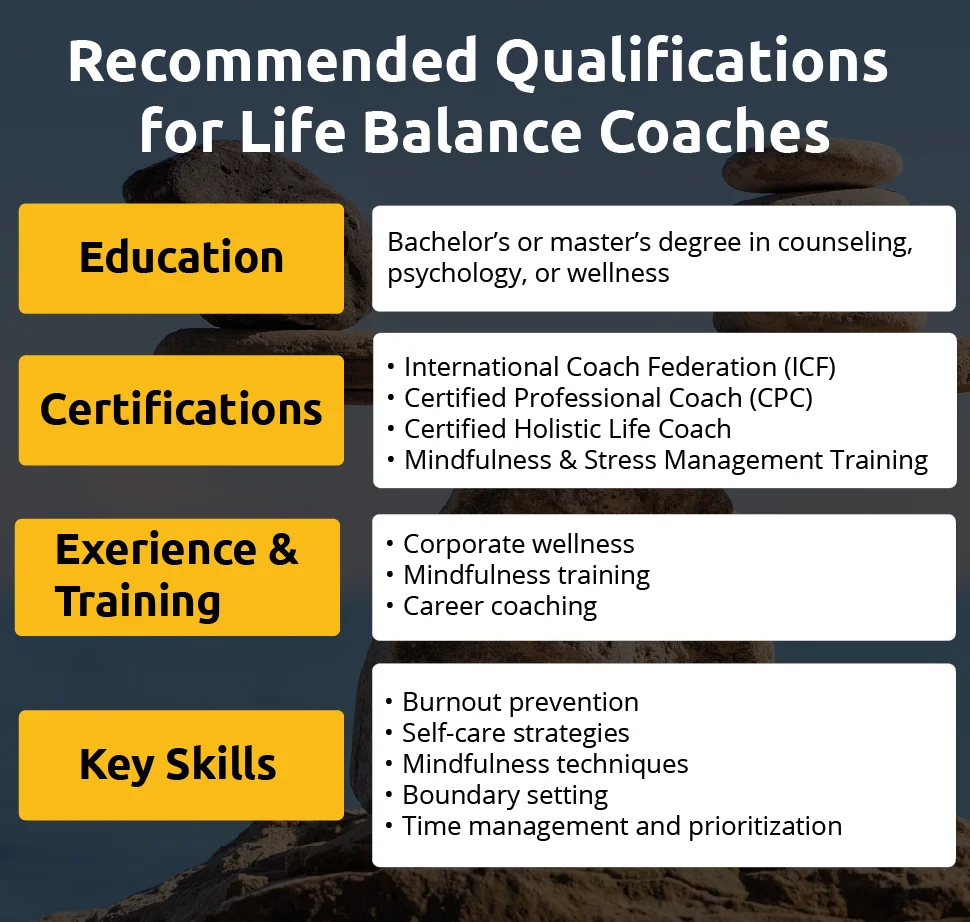
21. Retirement Coach
Retirement is a major milestone, but many people are uncertain about whether to retire — or they feel overwhelmed by the work of planning for it. A retirement coach provides guidance and support during this transition.
They may assist with financial planning and lifestyle changes and offer advice on how to make the most of retirement years, such as suggesting low-cost hobbies or activities they can partake in.
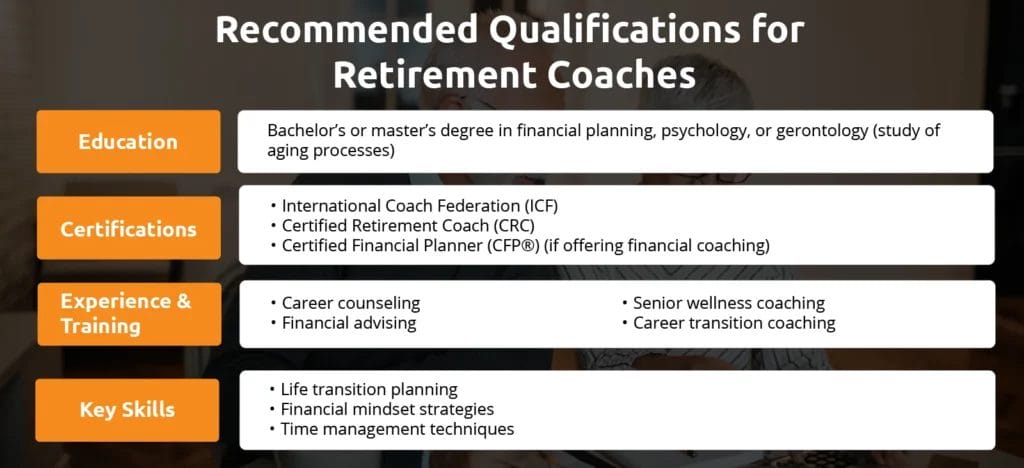
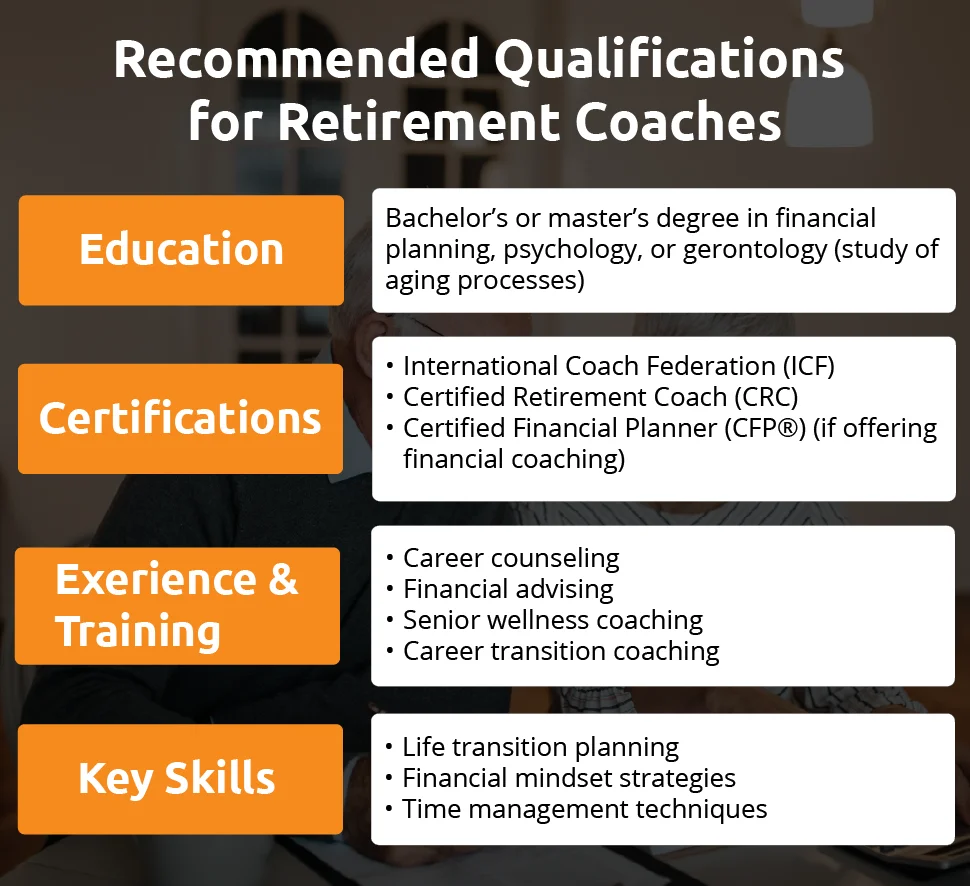
Recommended Certifications:
- International Coach Federation (ICF)
- Certified Retirement Coach (CRC)
- Certified Financial Planner (CFP®) (if offering financial coaching)
22. Spiritual Coach
A spiritual coach supports clients in exploring their spirituality and achieving inner peace and fulfillment. Helping people connect with themselves and understand their purpose in life, these coaches encourage clients to nurture their sense of spirituality by using meditation or religion.
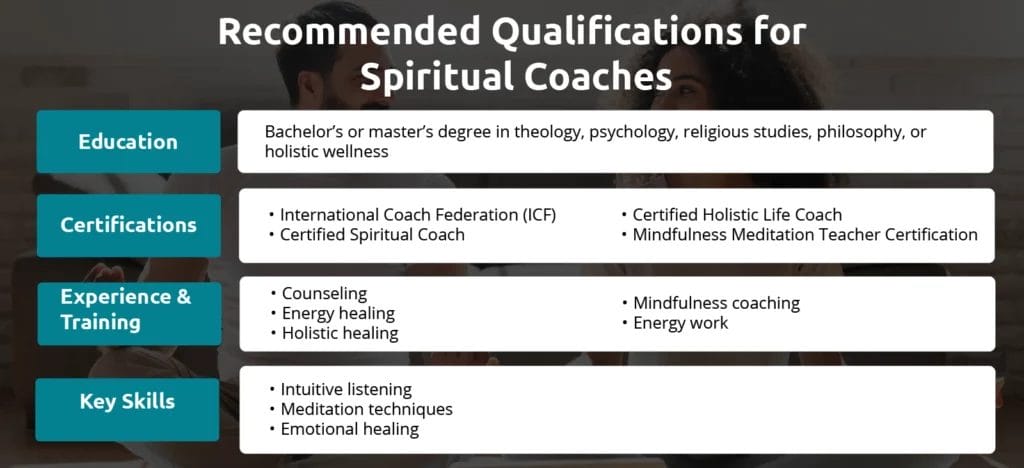
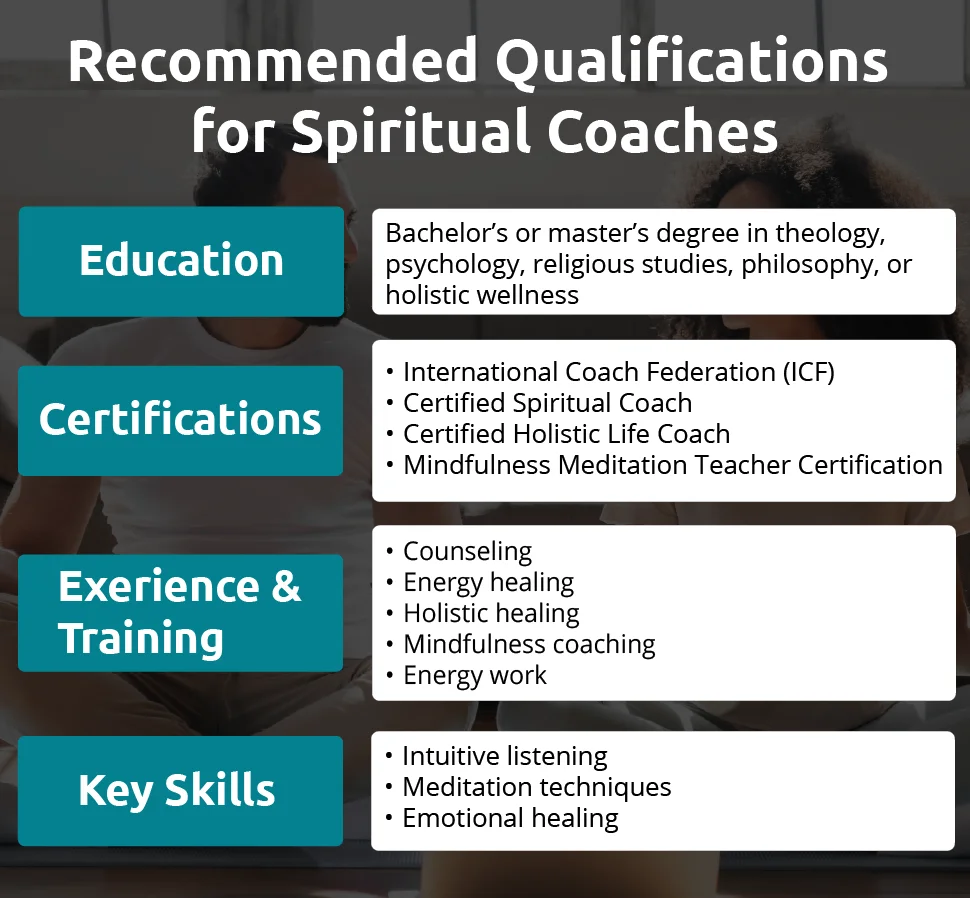
23. Transition Coach
Navigating major life transitions can be overwhelming. Transition coaches offer much-needed support for clients going through a career change or personal life transition. They provide strategies to effectively manage the challenges and uncertainties that often arise during these turbulent periods.
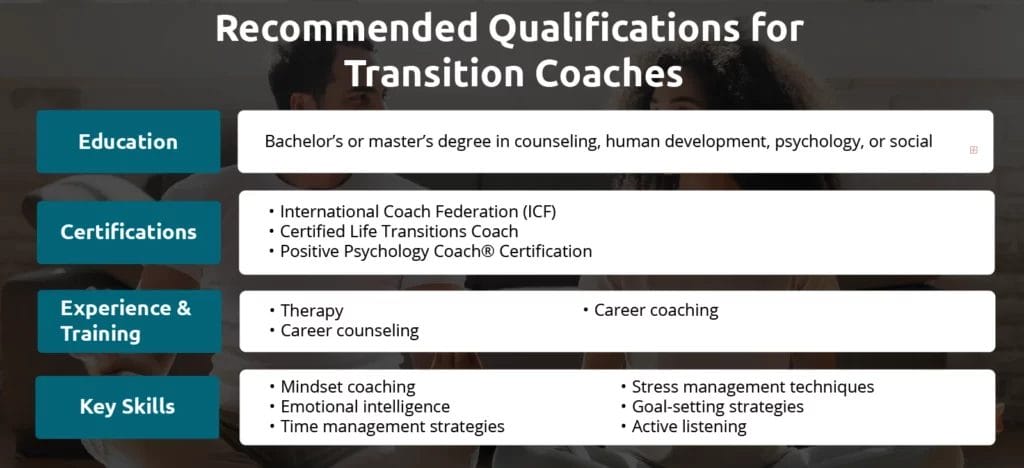
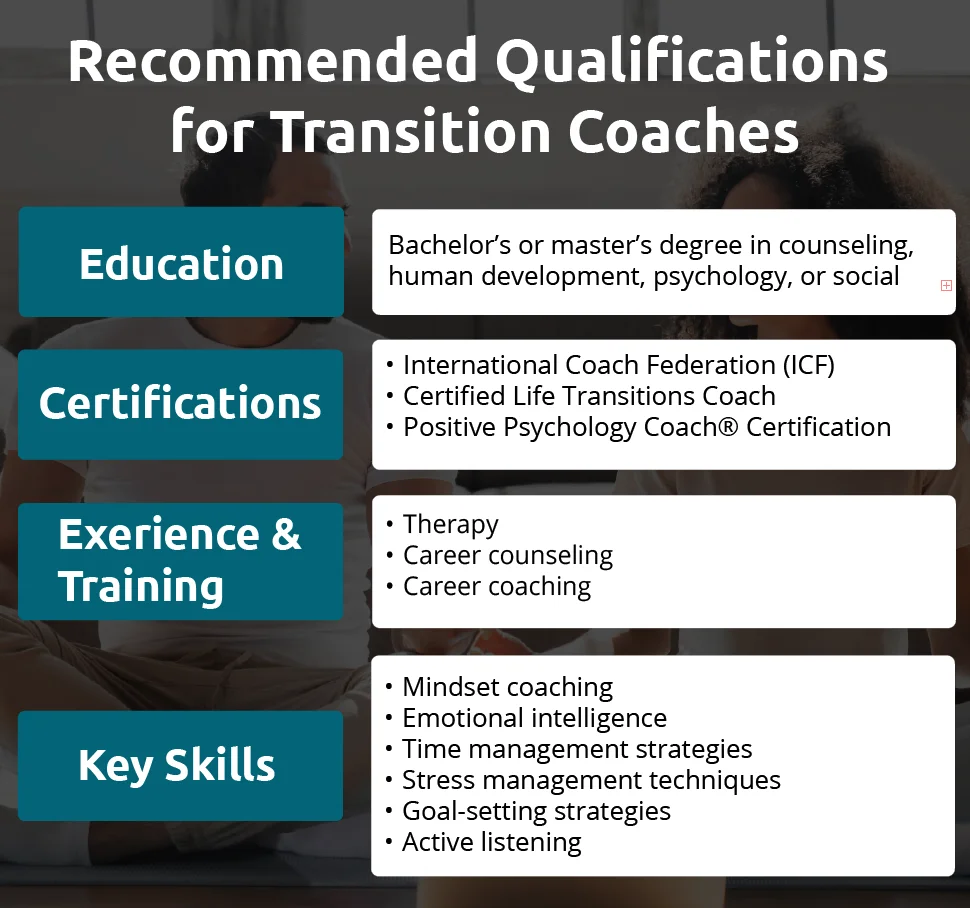
Recommended Certifications:
Specialized Coaching

While all life coaches bring a specialized skillset to their niches, some coaches have a narrower focus that requires in-depth knowledge. This includes expertise in test preparation, learning disabilities, financial literacy, and trauma.
24. Academic Coach
An academic coach works closely with students to help them succeed in school. They help students identify their strengths and weaknesses to assist them in creating realistic, achievable goals and smarter study habits. Academic coaches also help with time management, organization, and test-taking skills.
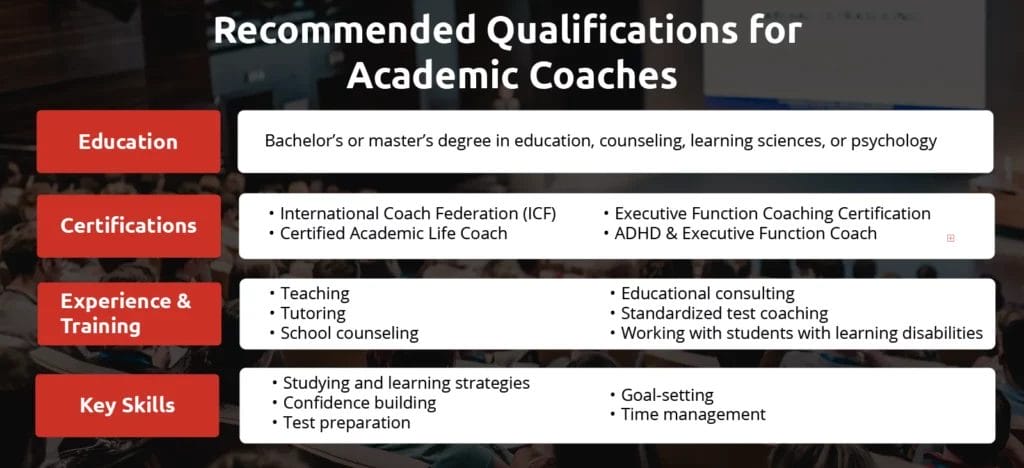
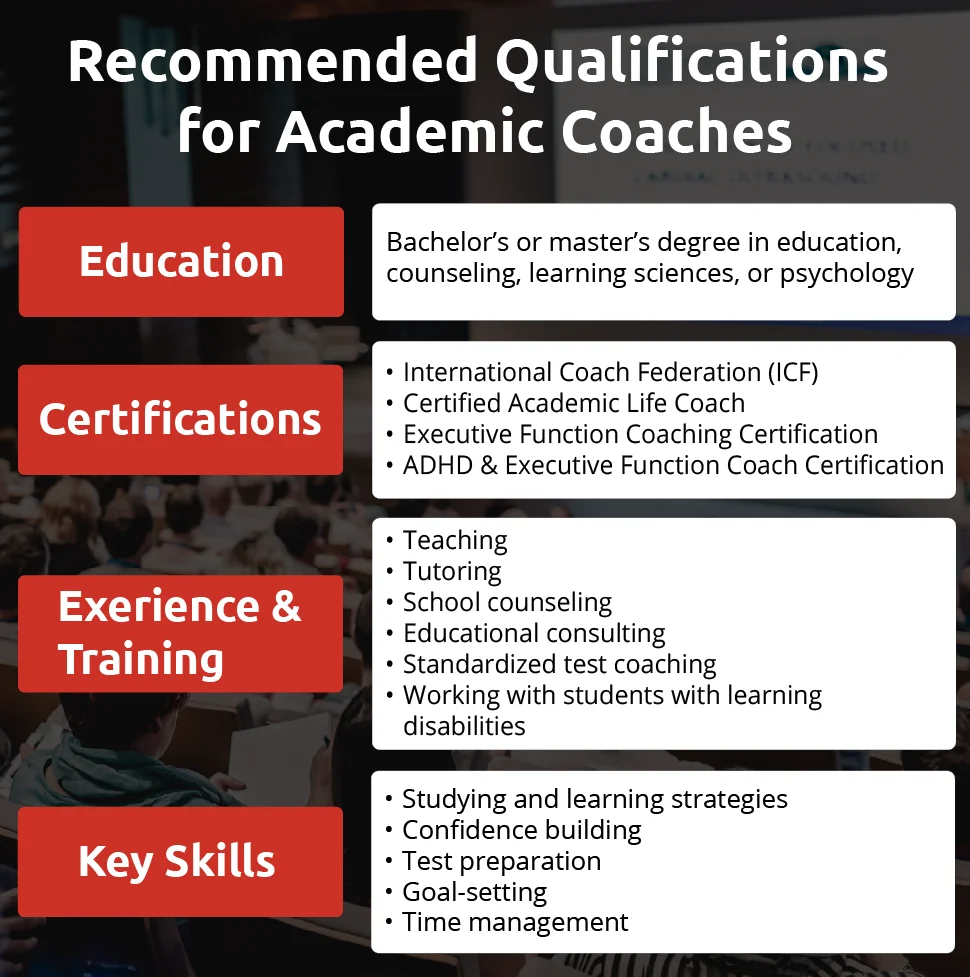
25. ADHD Coach
Over eight million American adults have been diagnosed with Attention-Deficit/Hyperactivity Disorder (ADHD). As understanding and awareness of this mental health disorder increases, many people turn to ADHD coaches.
An ADHD coach helps their clients stay present, learn strategies for handling distractions, and reframe their mindset to function better in daily life.
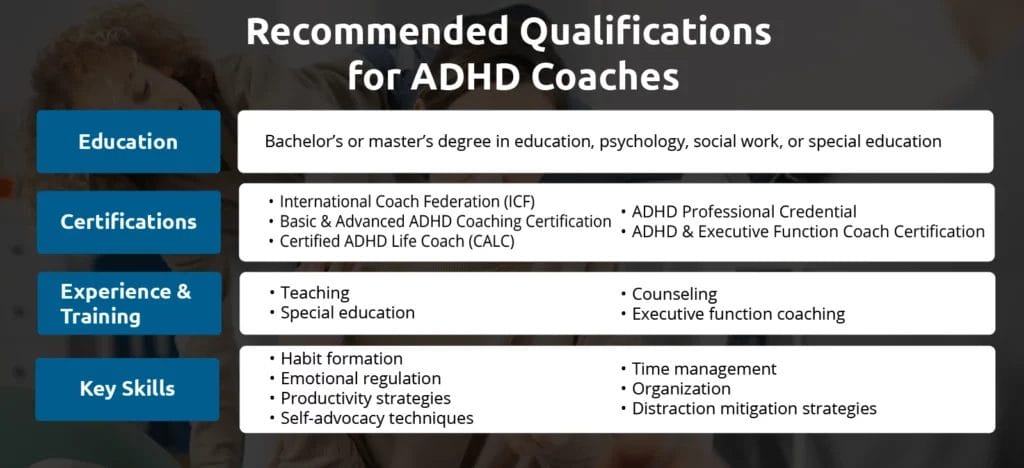

26. Financial Coach
A financial coach assists people and families in managing their finances. They provide advice and support for budgeting, dealing with debt, saving for retirement, and setting financial goals.
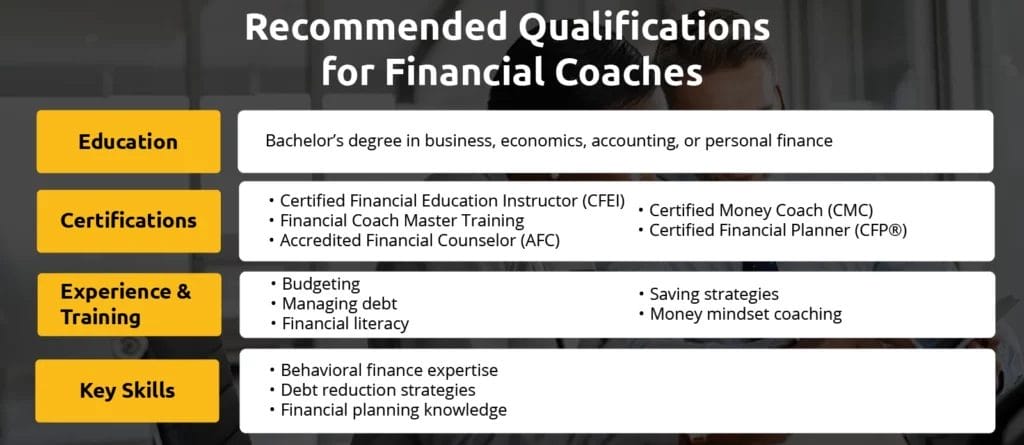
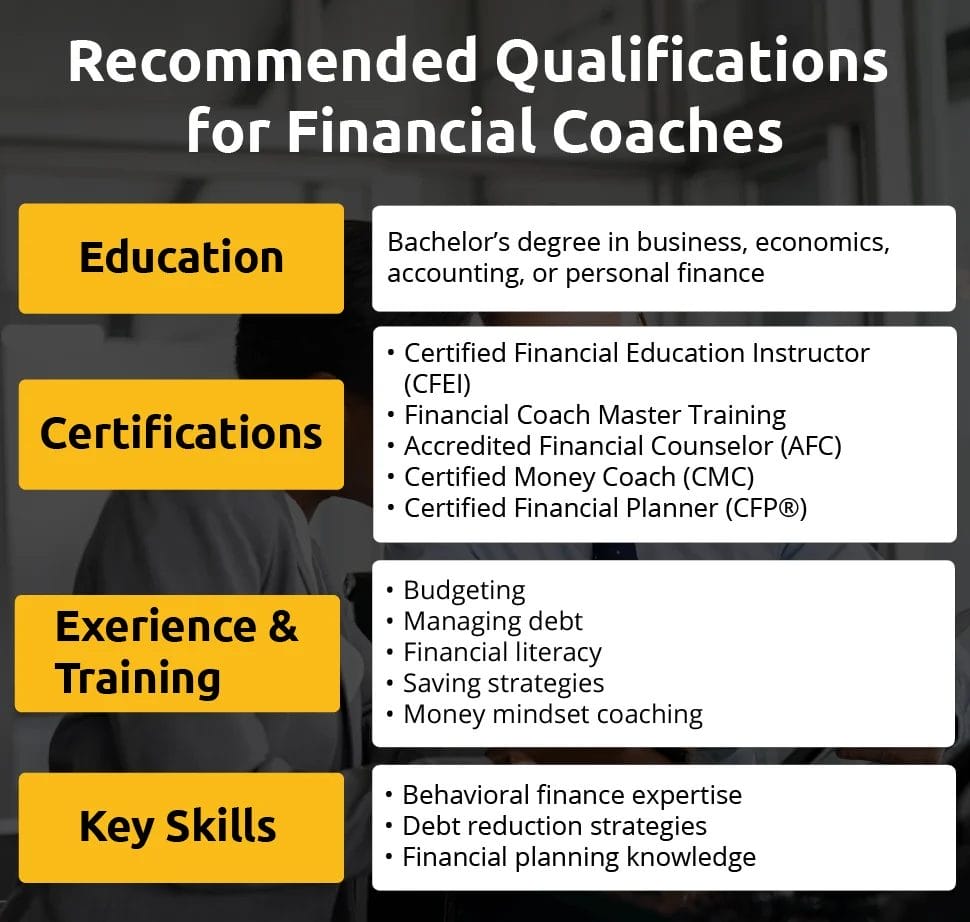
27. Trauma-Informed Coach
Trauma-informed coaches help individuals who have experienced some form of traumatic event (combat, assault, abusive relationships, etc.) process their feelings surrounding the event and learn how to move forward.
Because trauma is a sensitive and multifaceted issue, a good trauma-informed coach knows when a client should be referred to a therapist for more in-depth assistance. They employ techniques like somatic processing (using bodily sensations and feelings to aid healing) and positive psychology to help clients regain their sense of control.
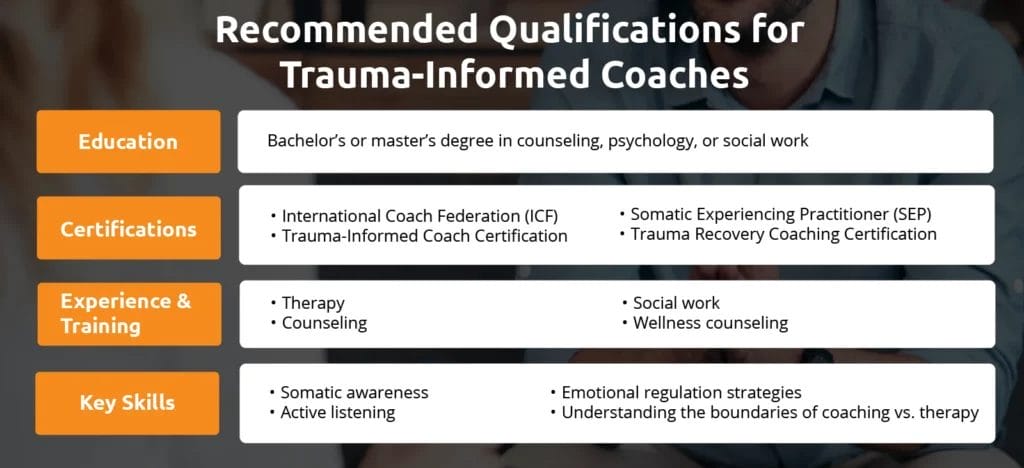
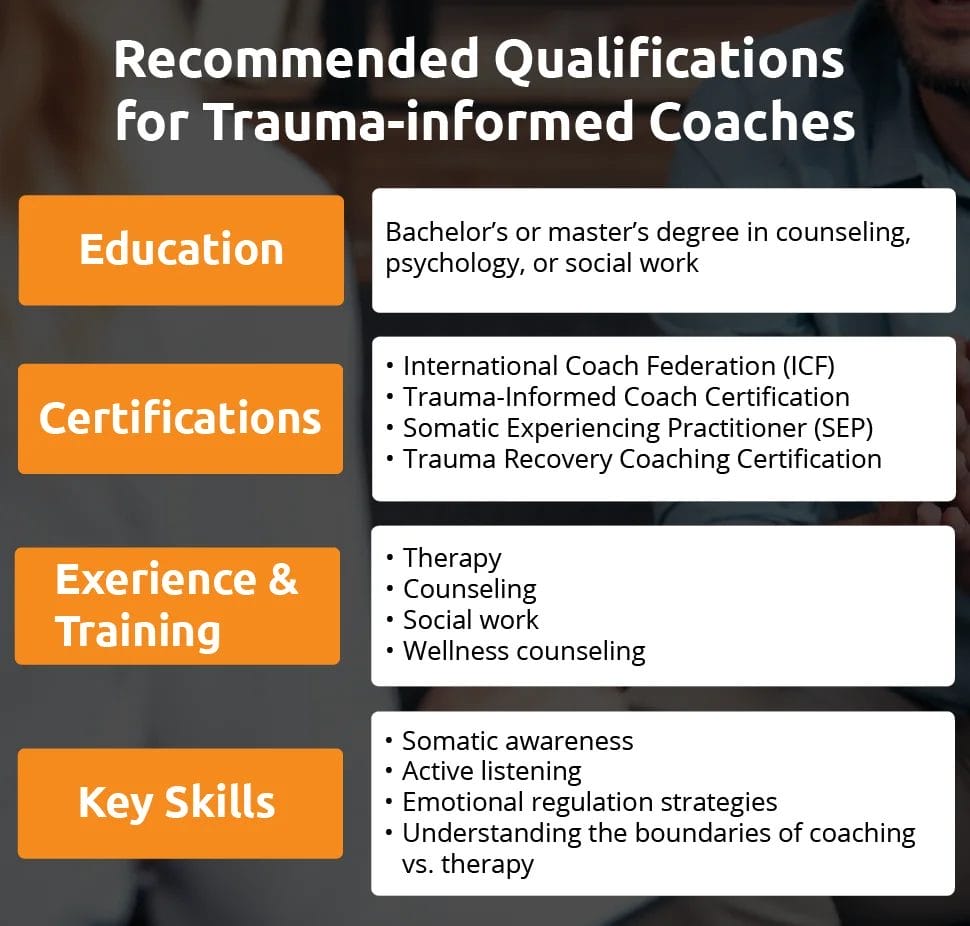
How to Choose the Right Life Coaching Niche
Deciding on the perfect life coaching path involves the same level of introspection you encourage in your clients.
Ask yourself a few questions when looking inward to understand which niche(s) suit you best:
- What are your strengths?
- What are your areas of expertise?
- What types of challenges are you most interested in helping people overcome?
- What education, certifications, training, or life experiences do you have that make you more qualified for a certain niche?
Once you’ve done some self-reflection and answered these questions, use our decision tree to discover which niches align best with your professional goals!
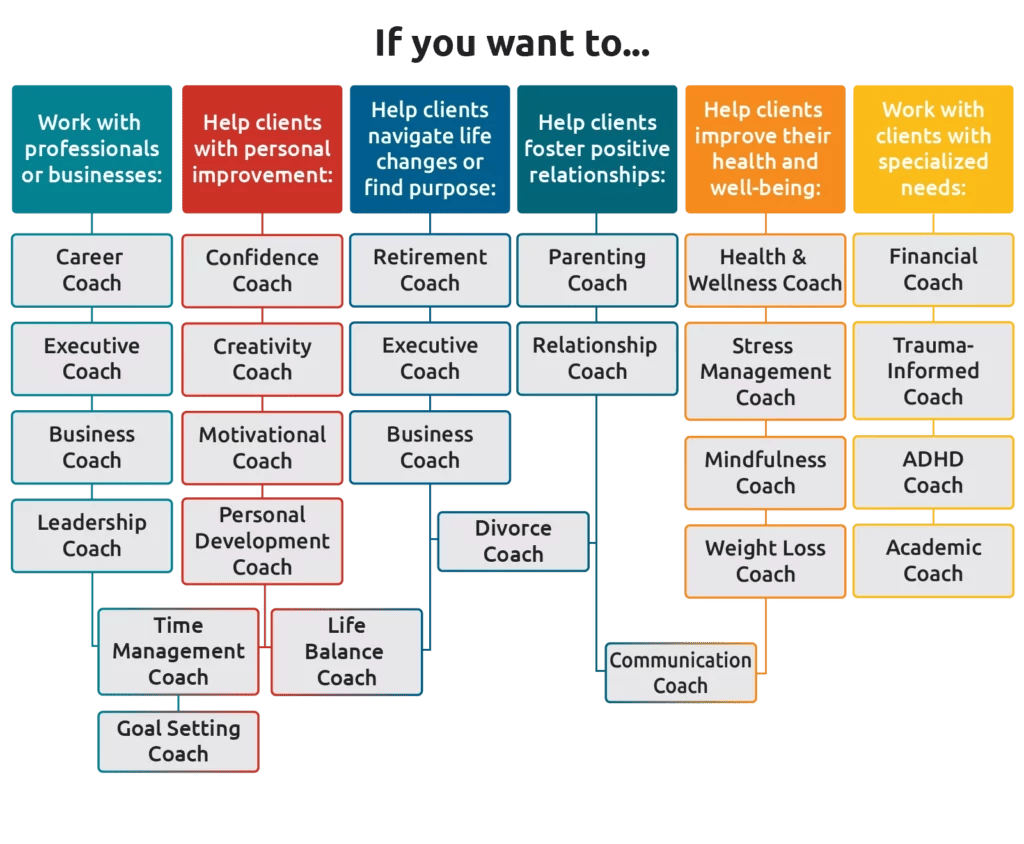
FAQs About Life Coaching Niches
What Are the Most Profitable Types of Life Coaching Niches?
Here are the most profitable life coaching niches in the U.S. and their average salaries per year:
- Executive coaching ($122,100+)
- Business coaching ($84,100+)
- Financial coaching ($47,000+)
- Career coaching ($46,600+)
- Leadership coaching ($40,300+)
For more information on what factors affect your income, check out our guide on how much life coaches earn!
Should I Start Broad and Specialize Later?
It’s best to pick your niche and specialize when you start your life coaching business for a number of reasons:
- You attract clients that are a better fit for you and reduce the amount of turnover you experience
- You may be able to charge higher rates because you fill a gap for a very specific coaching niche or have certifications that set you apart
- You stand out in the saturated life coaching market
- Your marketing efforts are more effective because they target specific individuals and niche needs
How Do I Differentiate Myself in a Crowded Coaching Market?
Picking a life coaching niche is one of the best ways to set yourself apart from other life coaches, but other excellent strategies include:
- Developing your own coaching framework unique to you and your business
- Attending life coaching conferences and industry events to increase your visibility
- Writing blog posts about life coaching on your website (or guest posts on another relevant site) to establish your authority)
- Using positive testimonials from previous clients on your website, social media profiles, and your marketing efforts (email newsletters, paid ads, etc.)
- Building a brand that resonates with clients by infusing it with your personality and your story; explain why you chose this career path and craft messaging that makes you come across as friendly, approachable, and helpful

Alex Hastings | Copywriter
Seattle-based copywriter and Washington State-licensed insurance agent Alex Hastings leverages her insurance and teaching background (and her love of a good cocktail!) to write about educators and liquor liability insurance. She holds a B.A. in Creative Writing from Western Washington University. Before working at Veracity, she was a retail copywriter and editor at Zulily and an English language teacher in South Korea. Alex is fully trained on liquor, DJs, entertainers, mentors, and consultants insurance coverages and writes content that connects business owners with the policies they need.
Seattle-based copywriter and Washington State-licensed insurance agent Alex Hastings leverages her insurance and teaching background (and her love of a good cocktail!) to write about educators and liquor liability insurance. She holds a B.A. in Creative Writing from Western Washington University. Before working at Veracity, she was a retail copywriter and editor at Zulily and an English language teacher in South Korea. Alex is fully trained on liquor, DJs, entertainers, mentors, and consultants insurance coverages and writes content that connects business owners with the policies they need.





